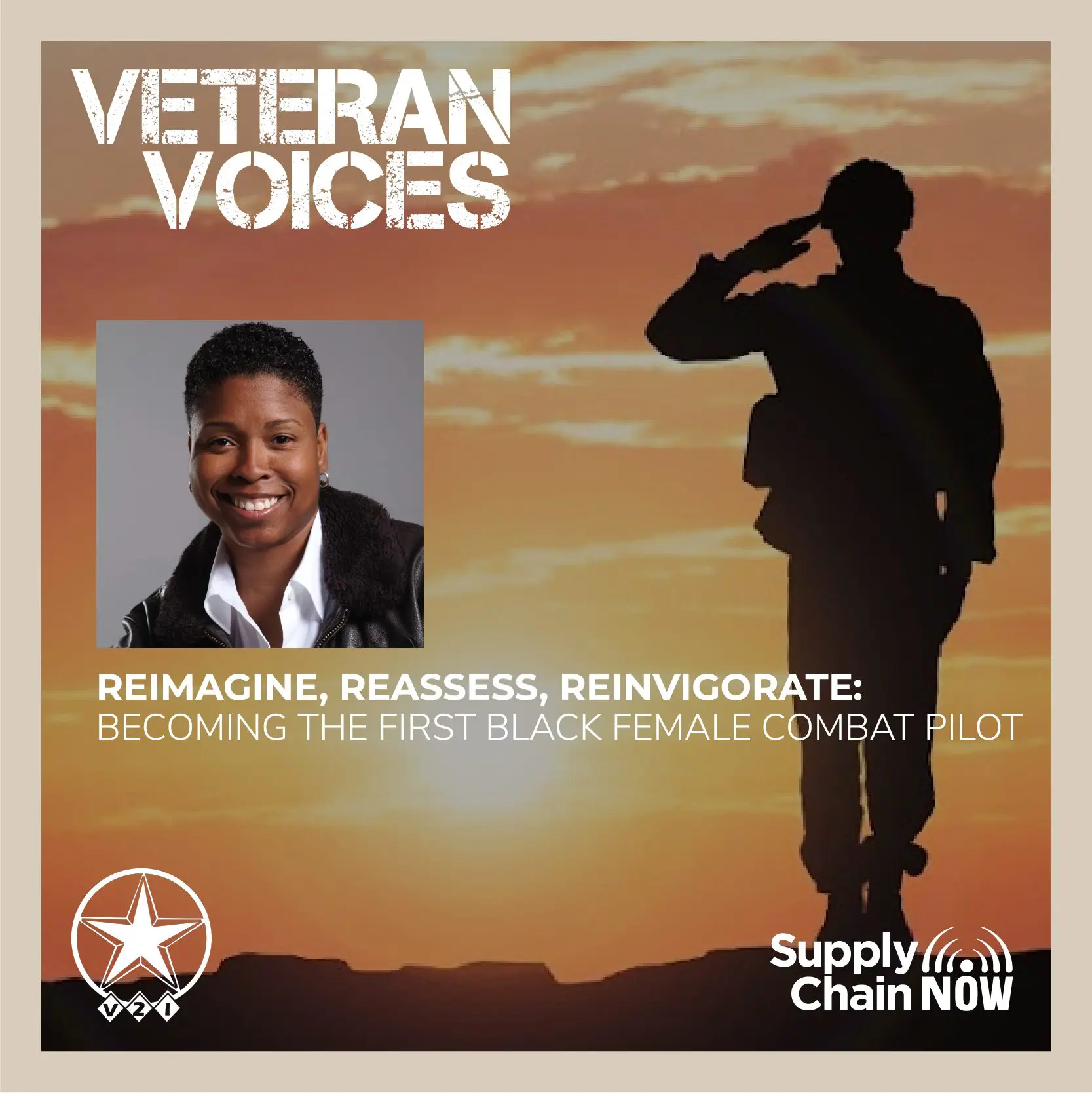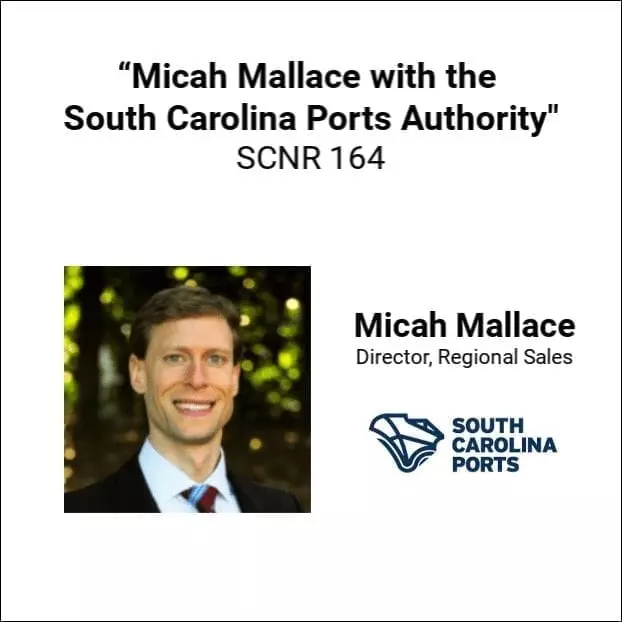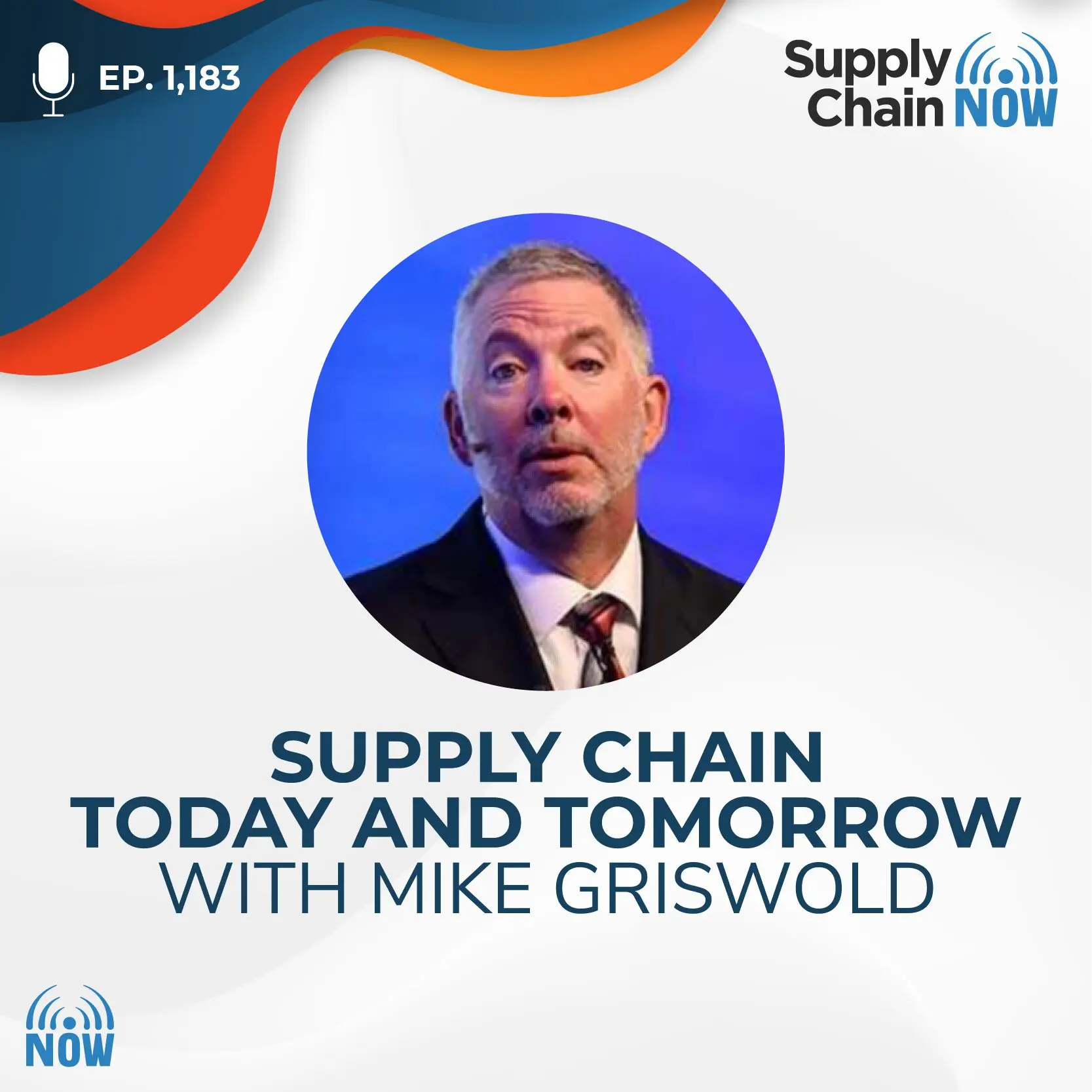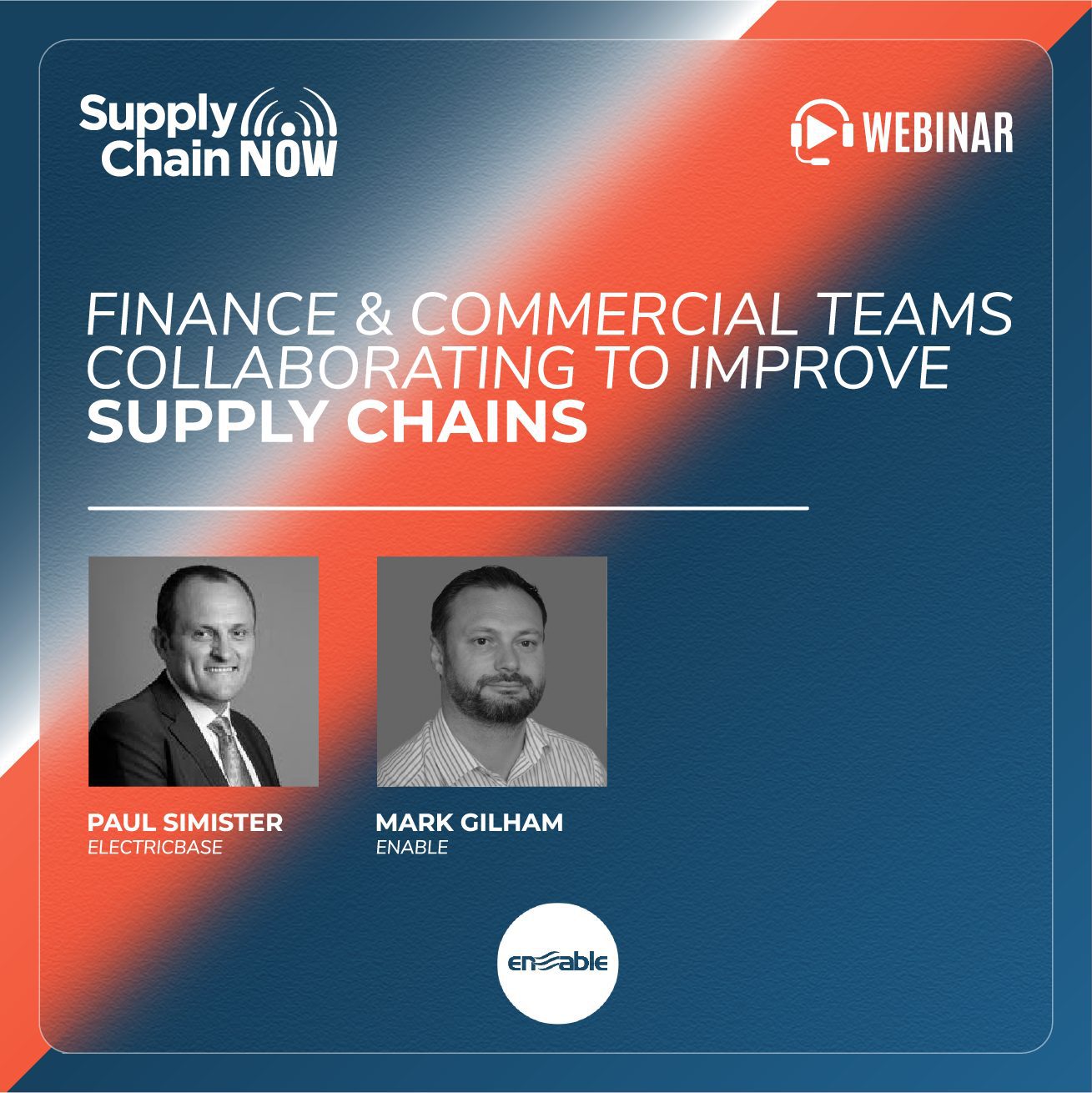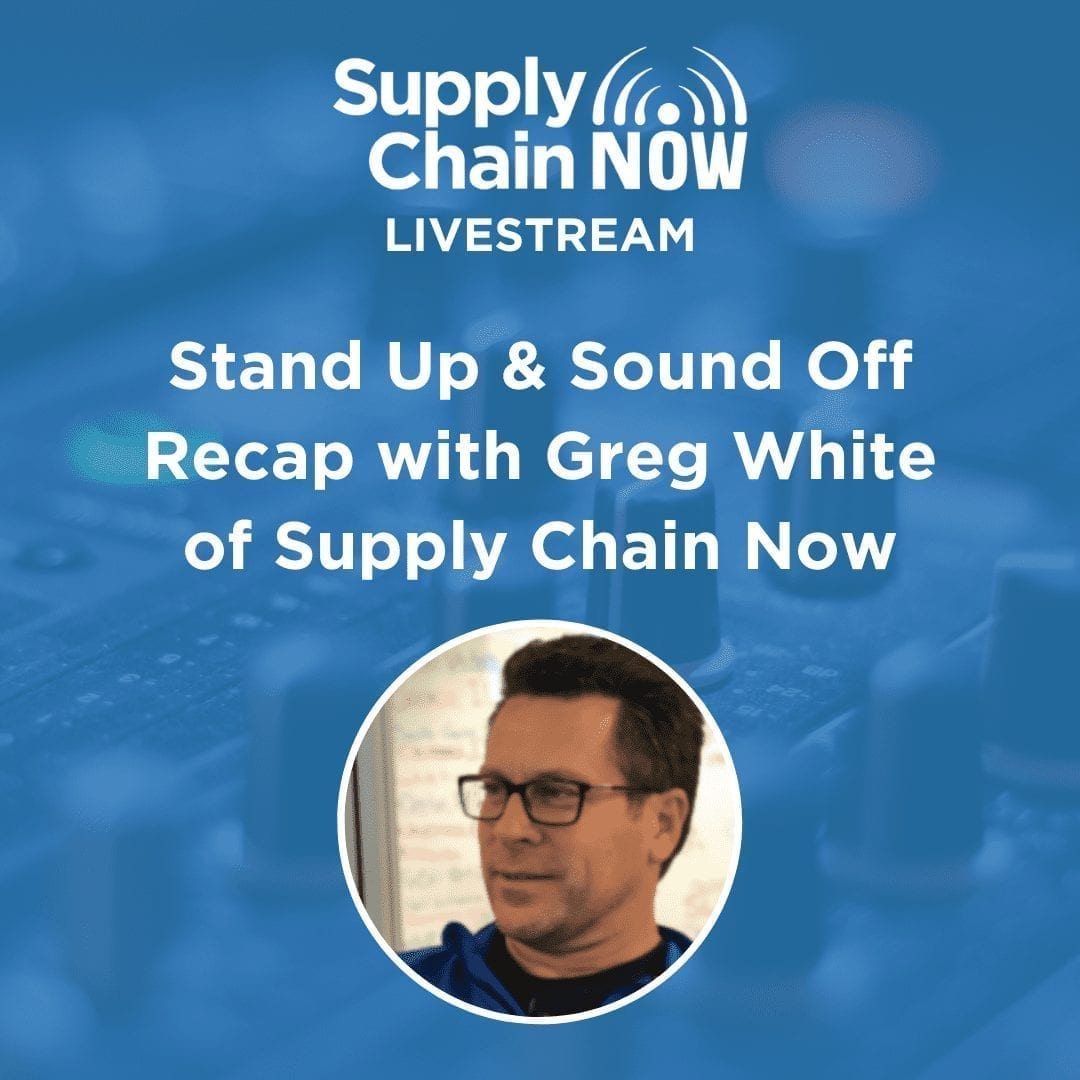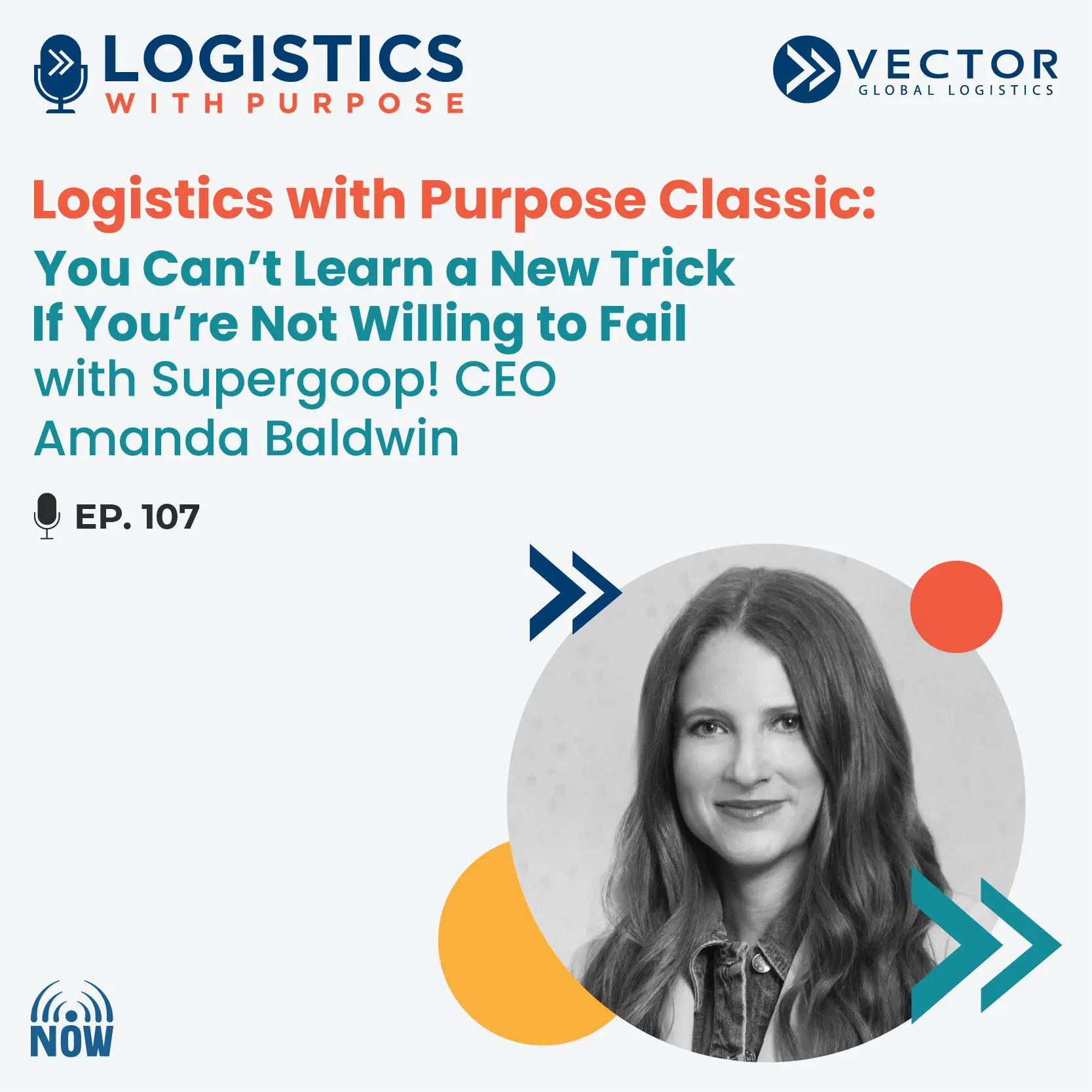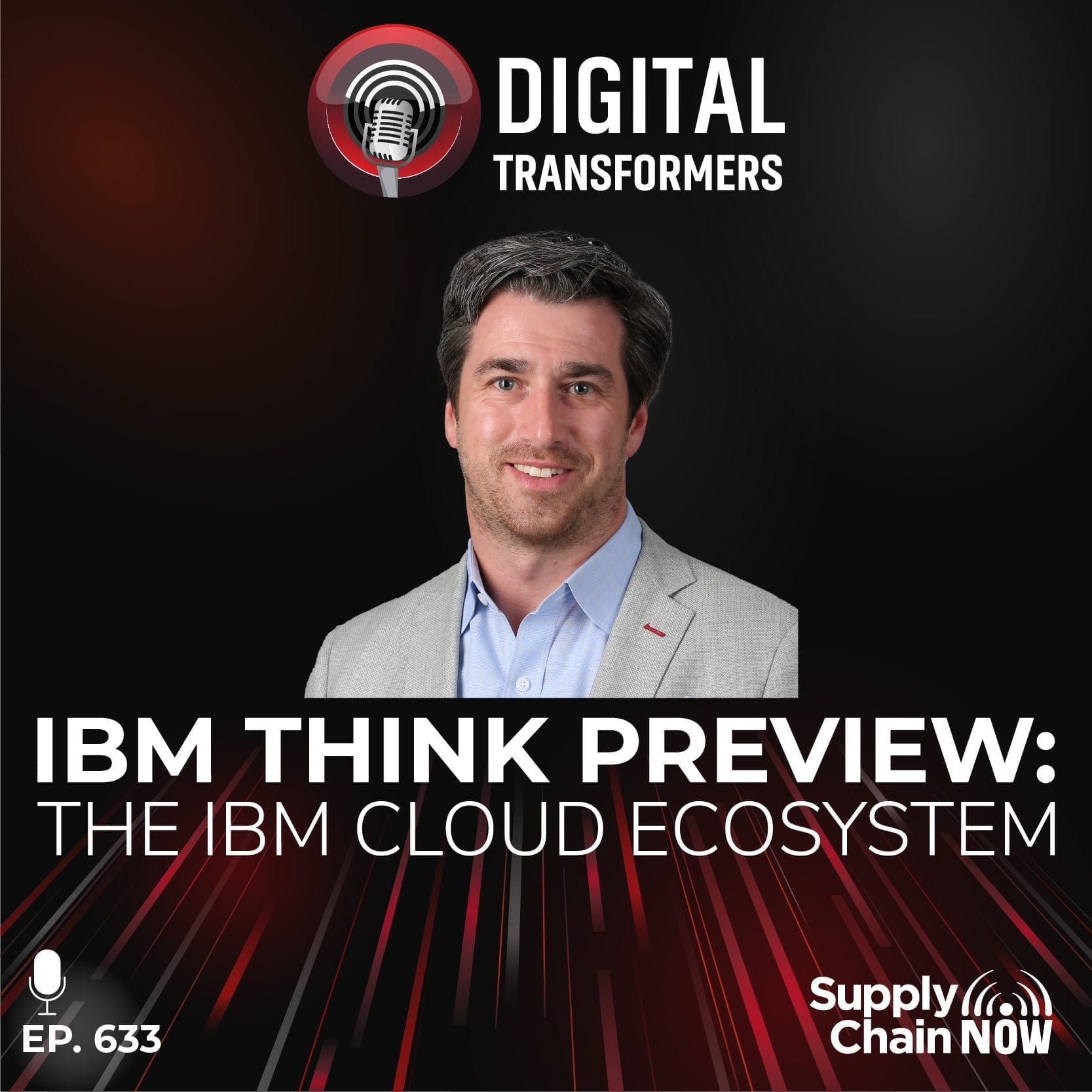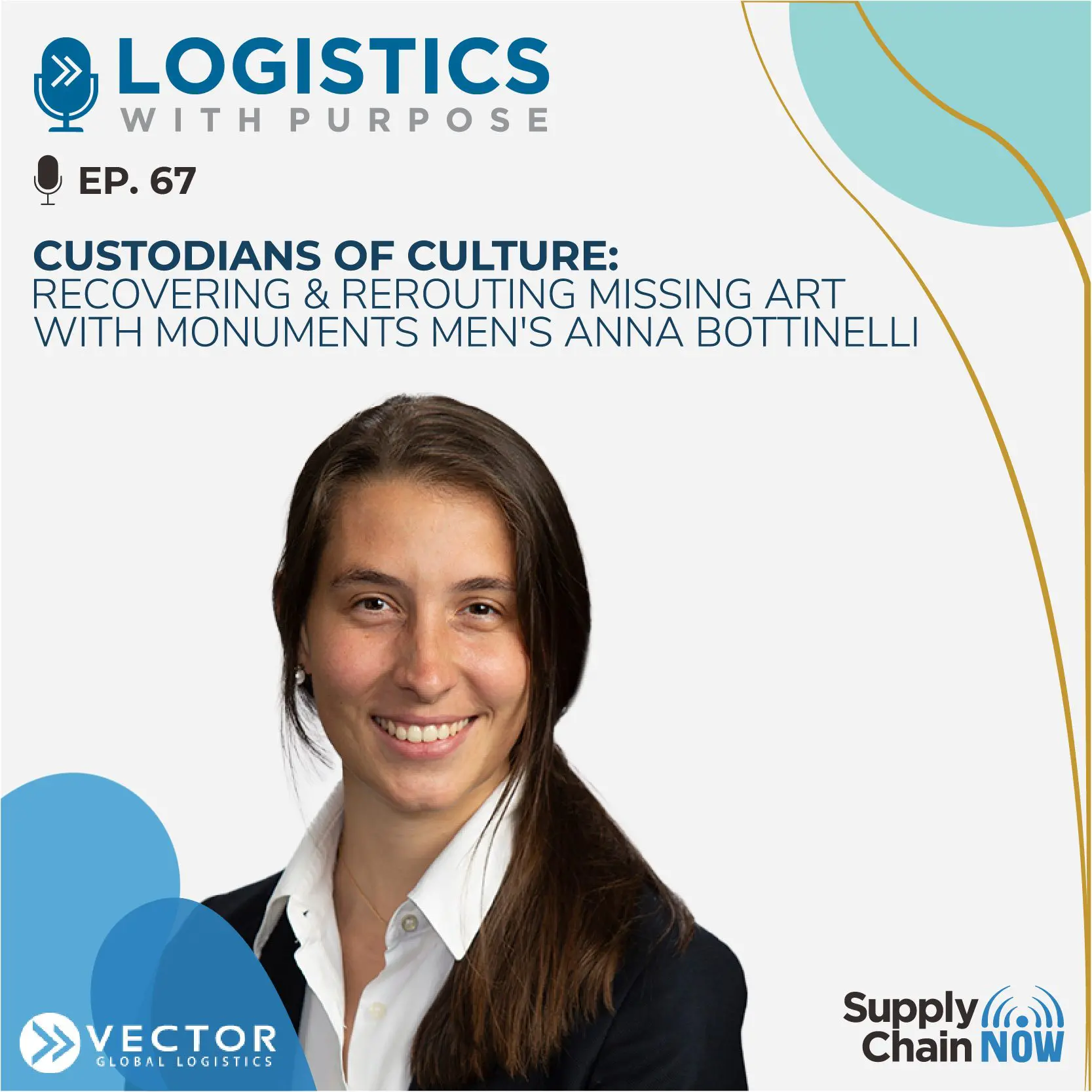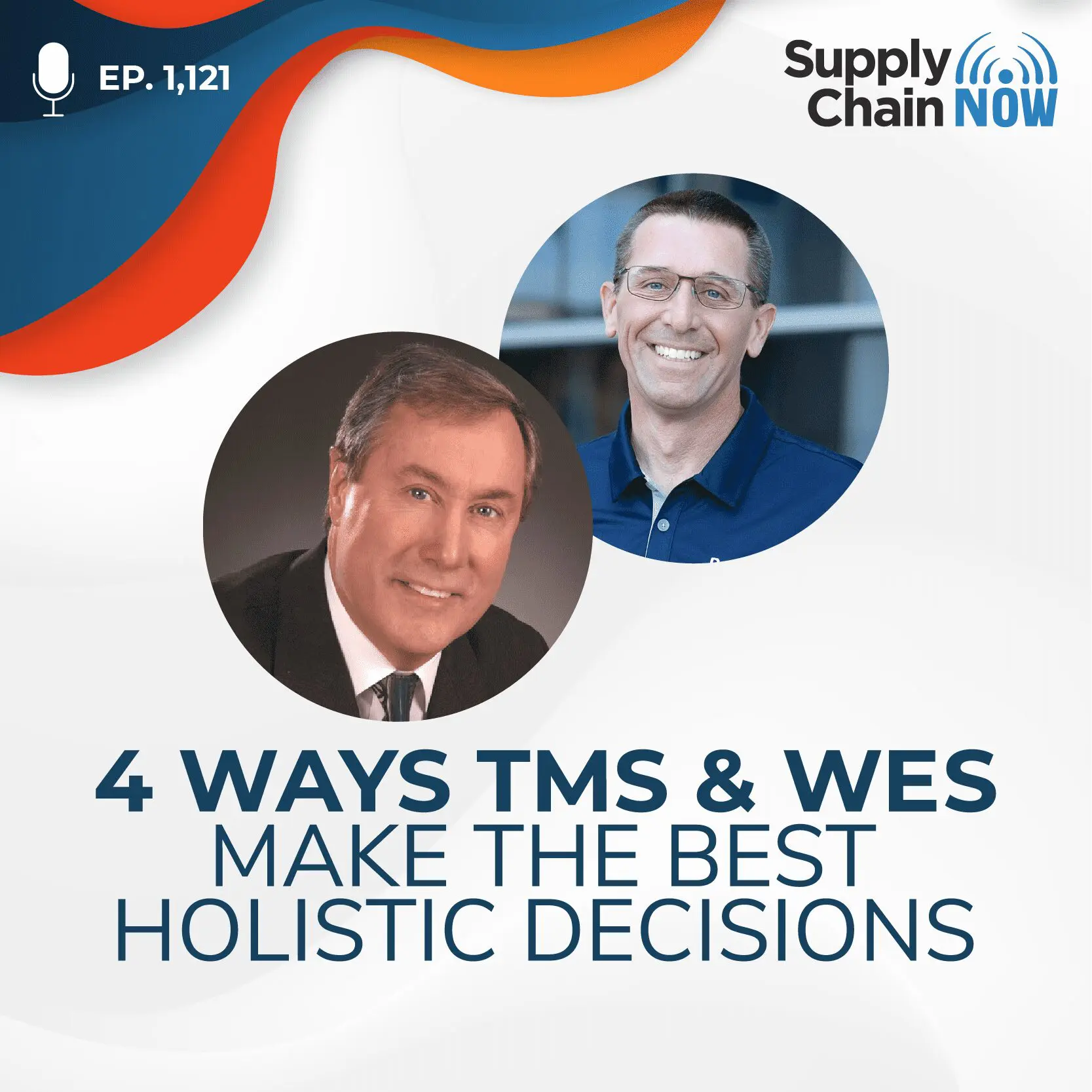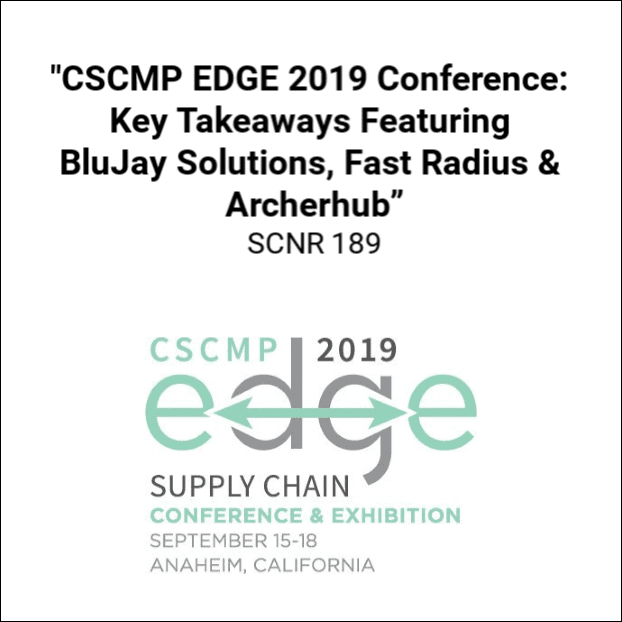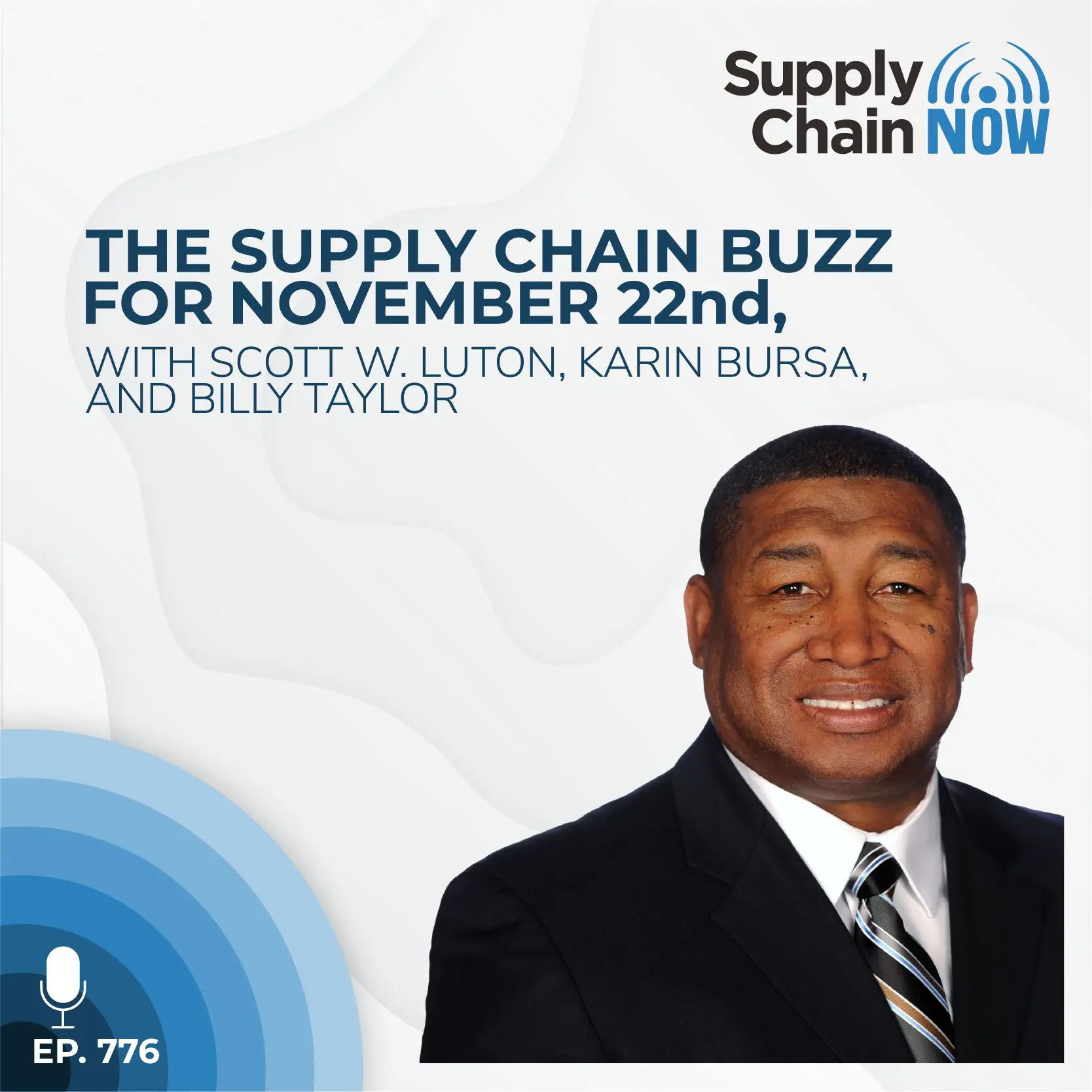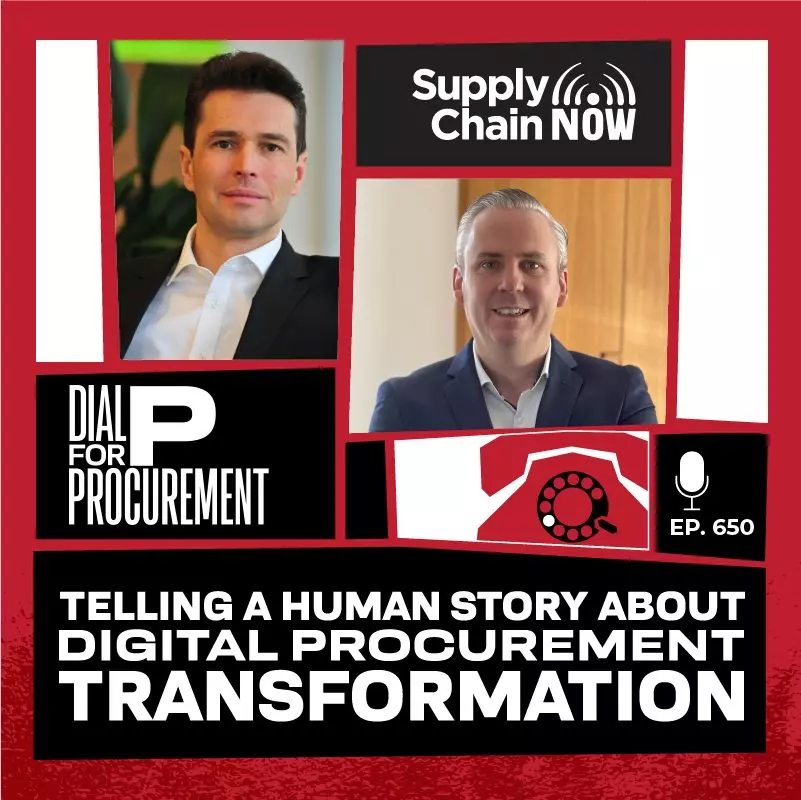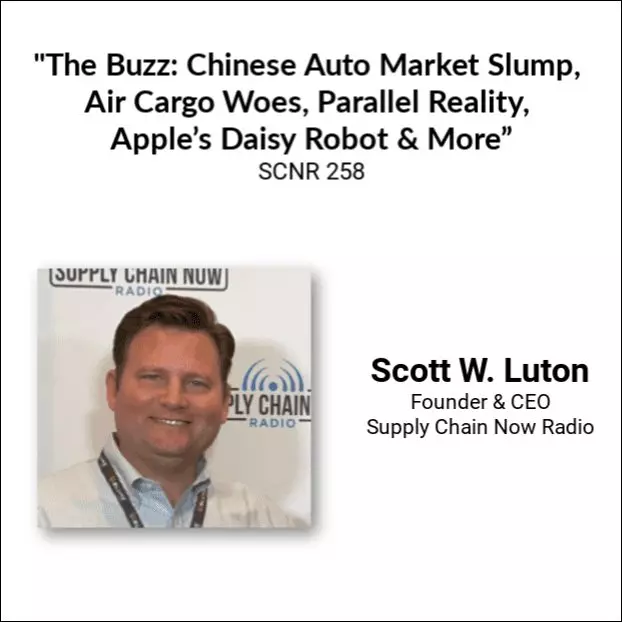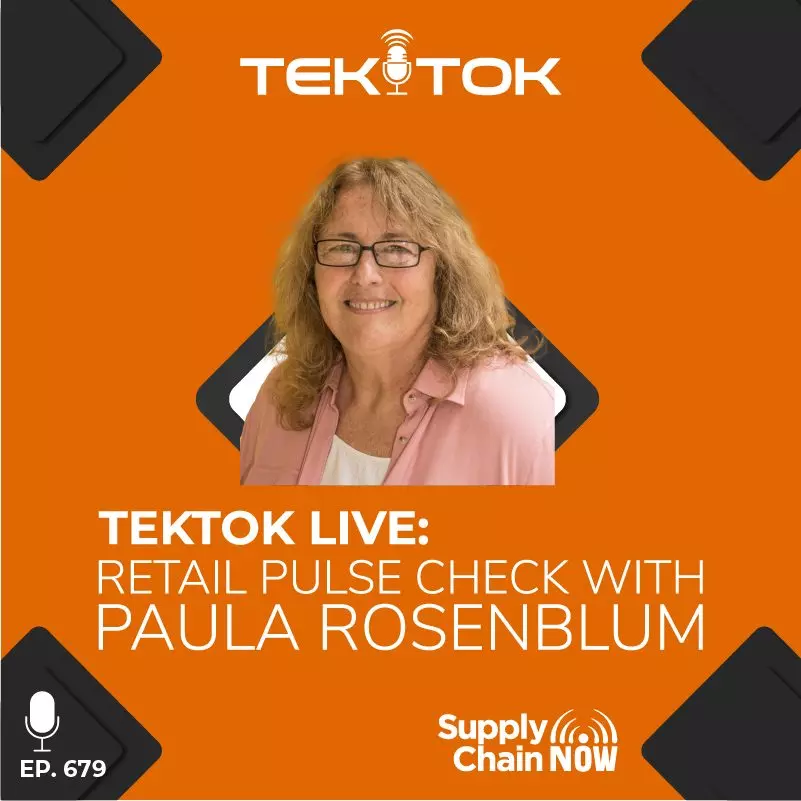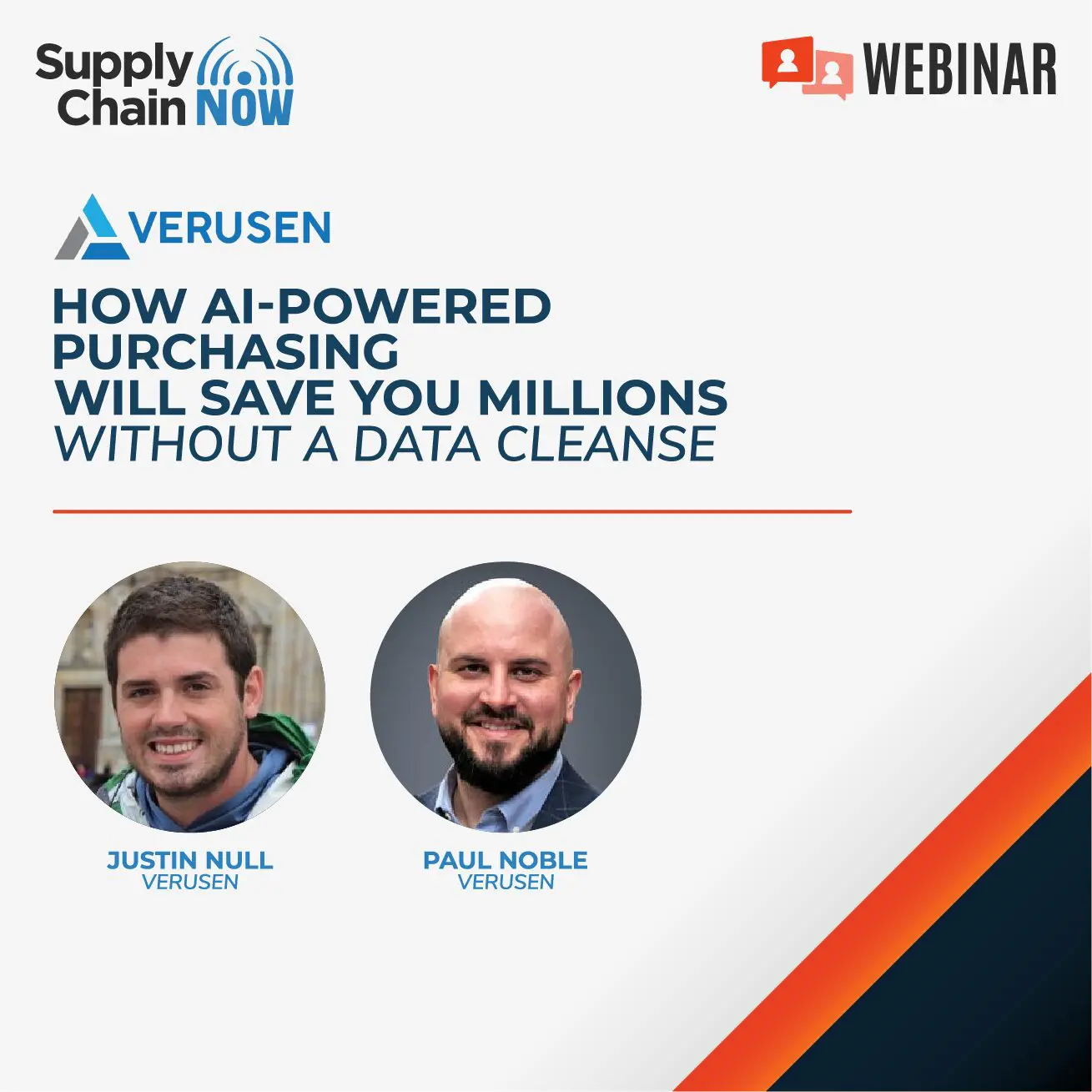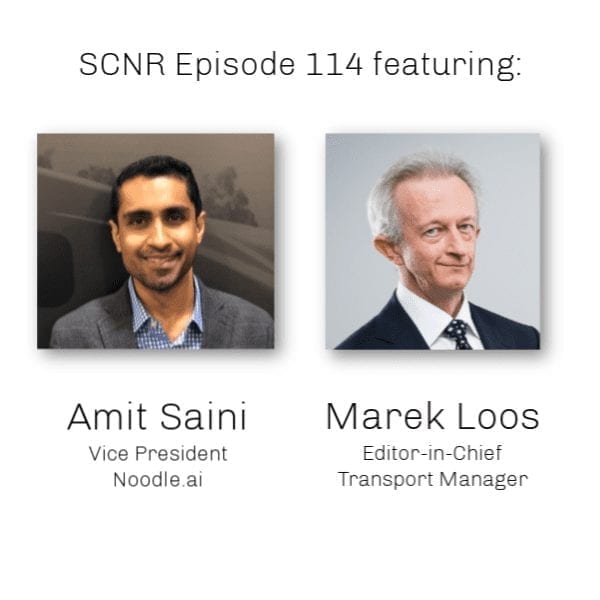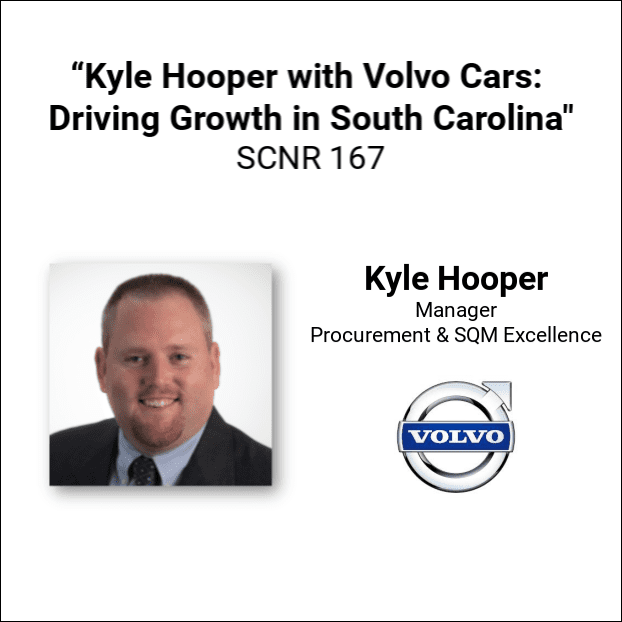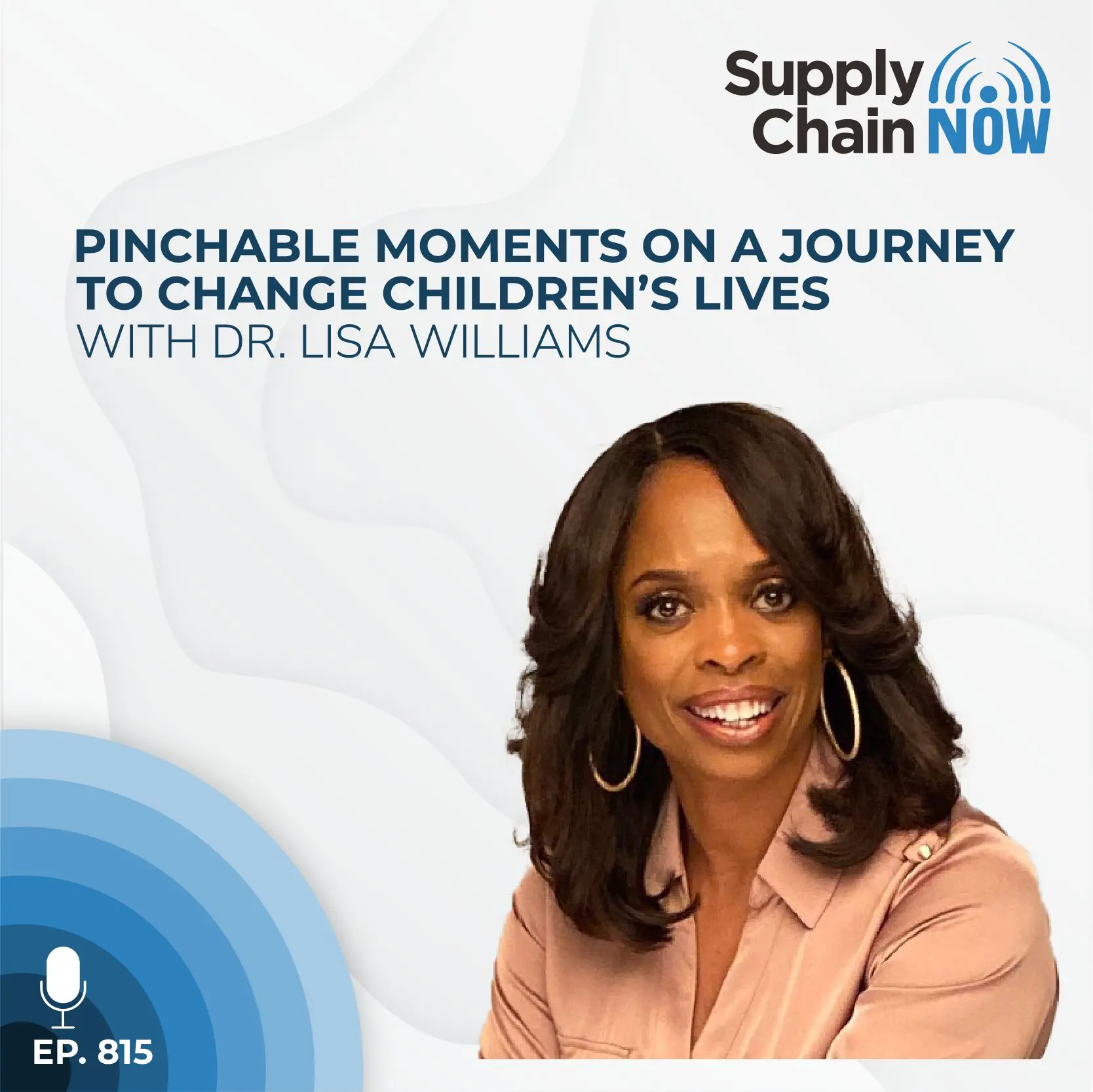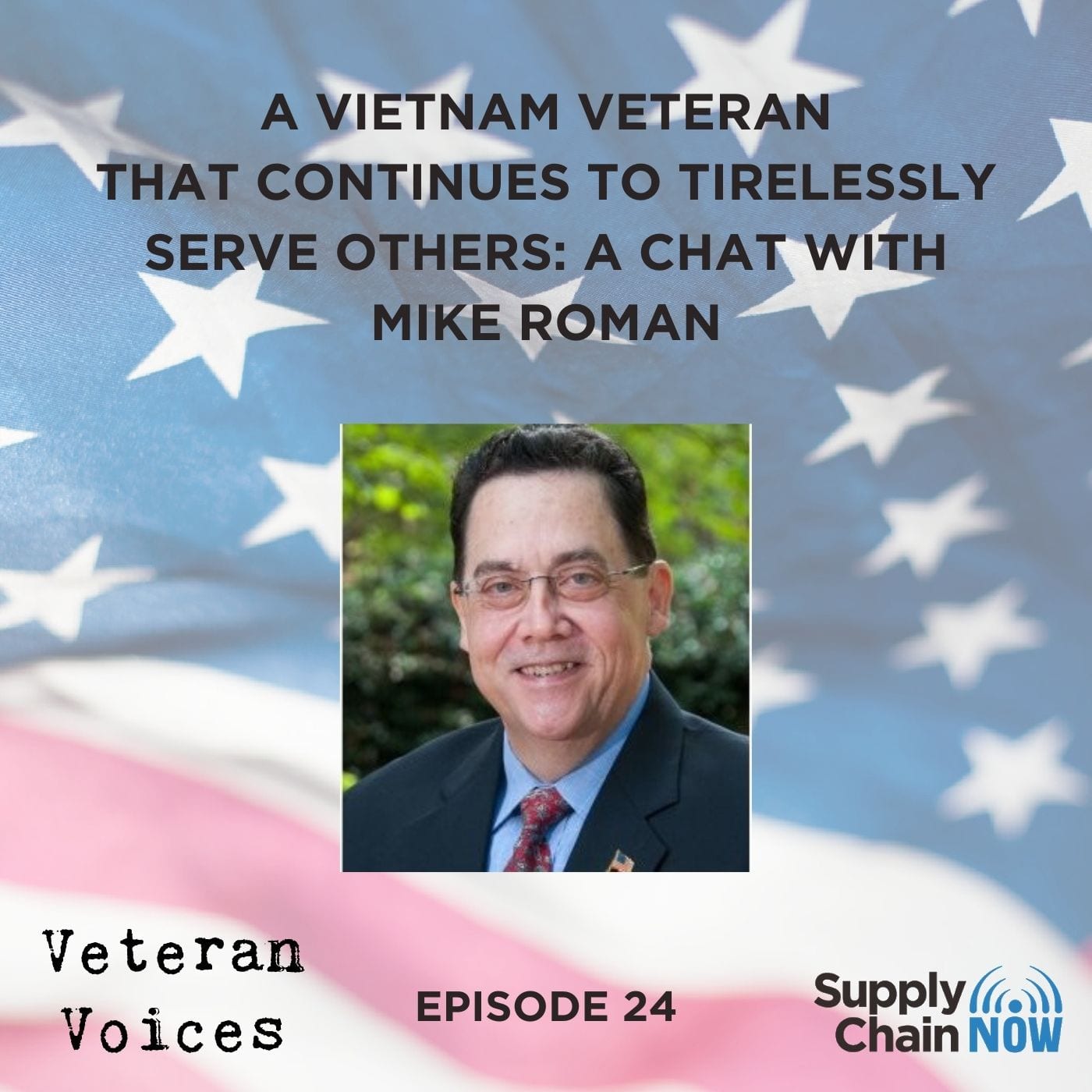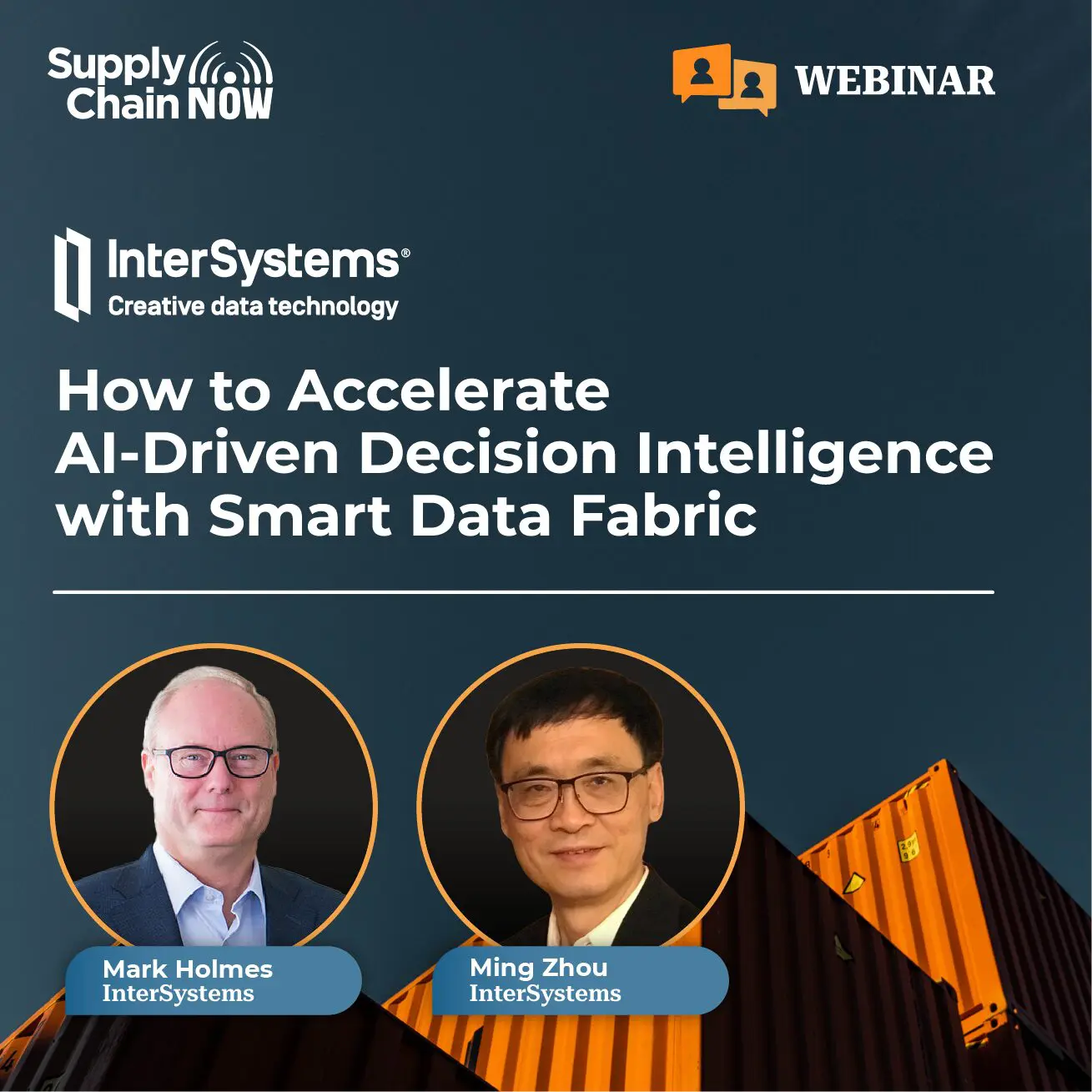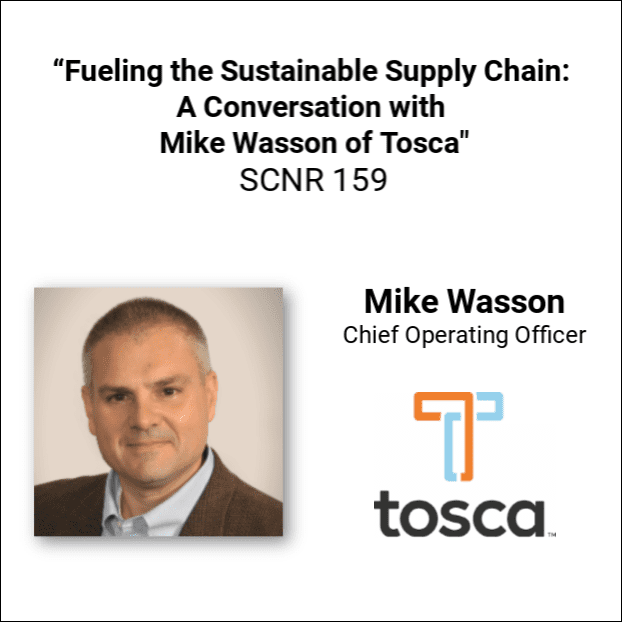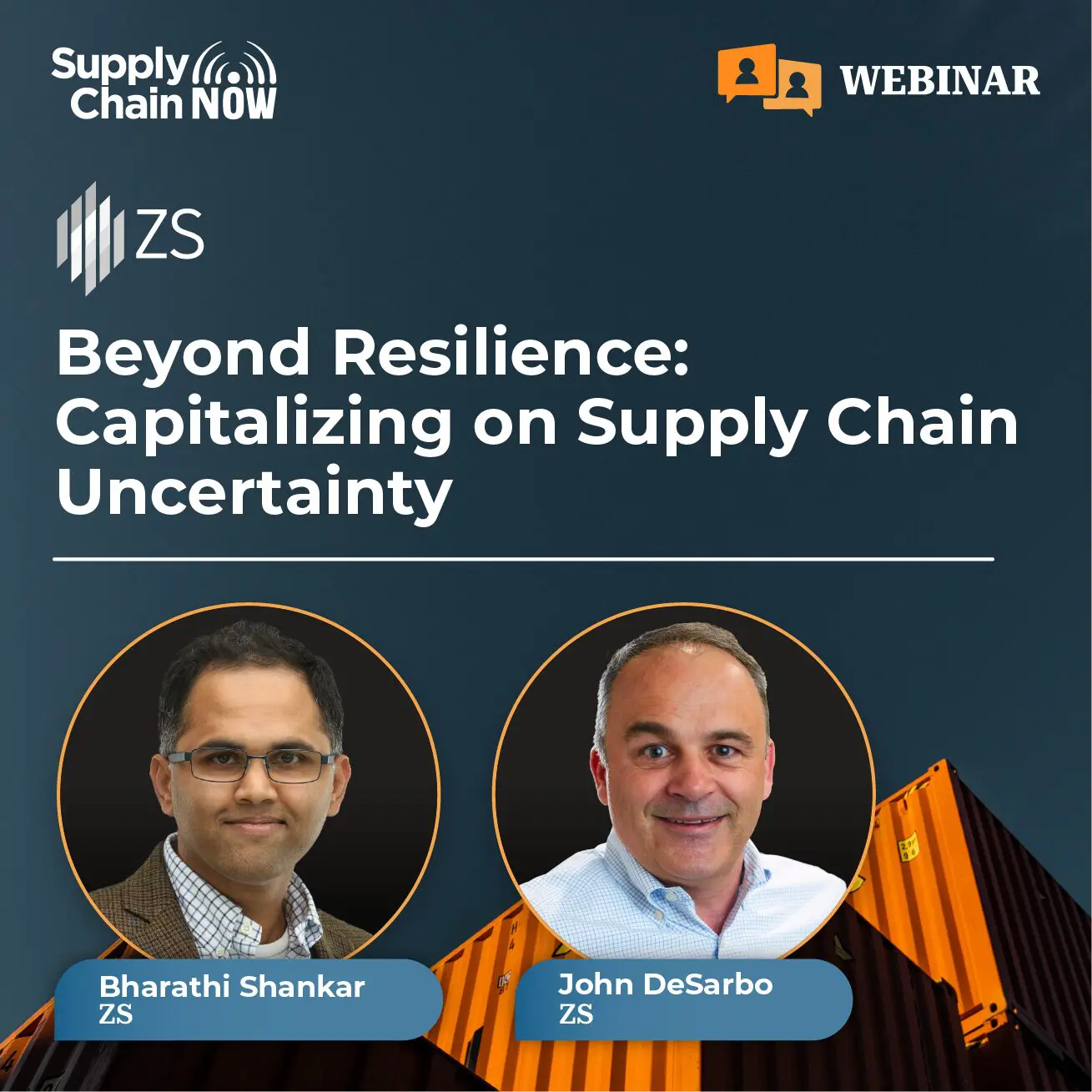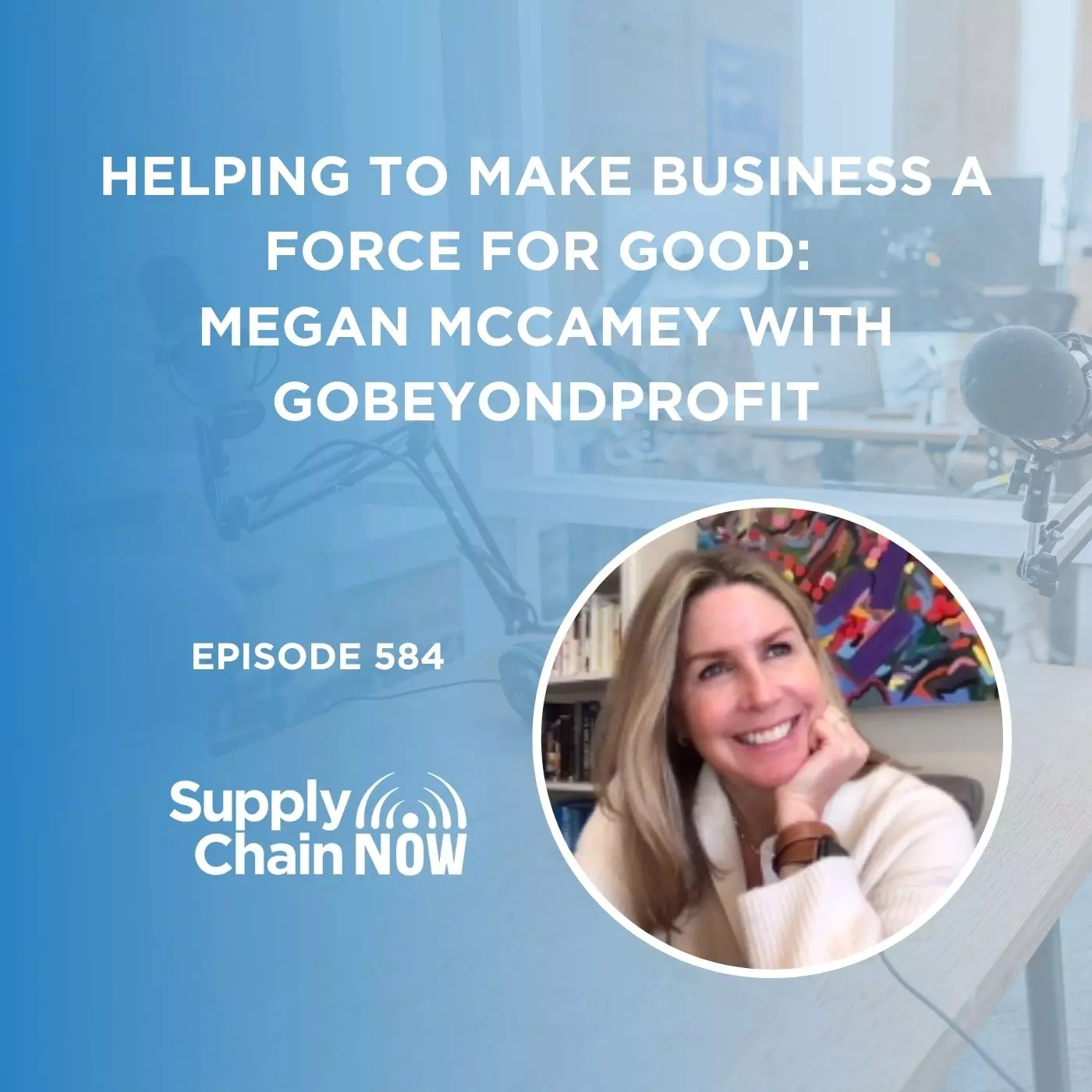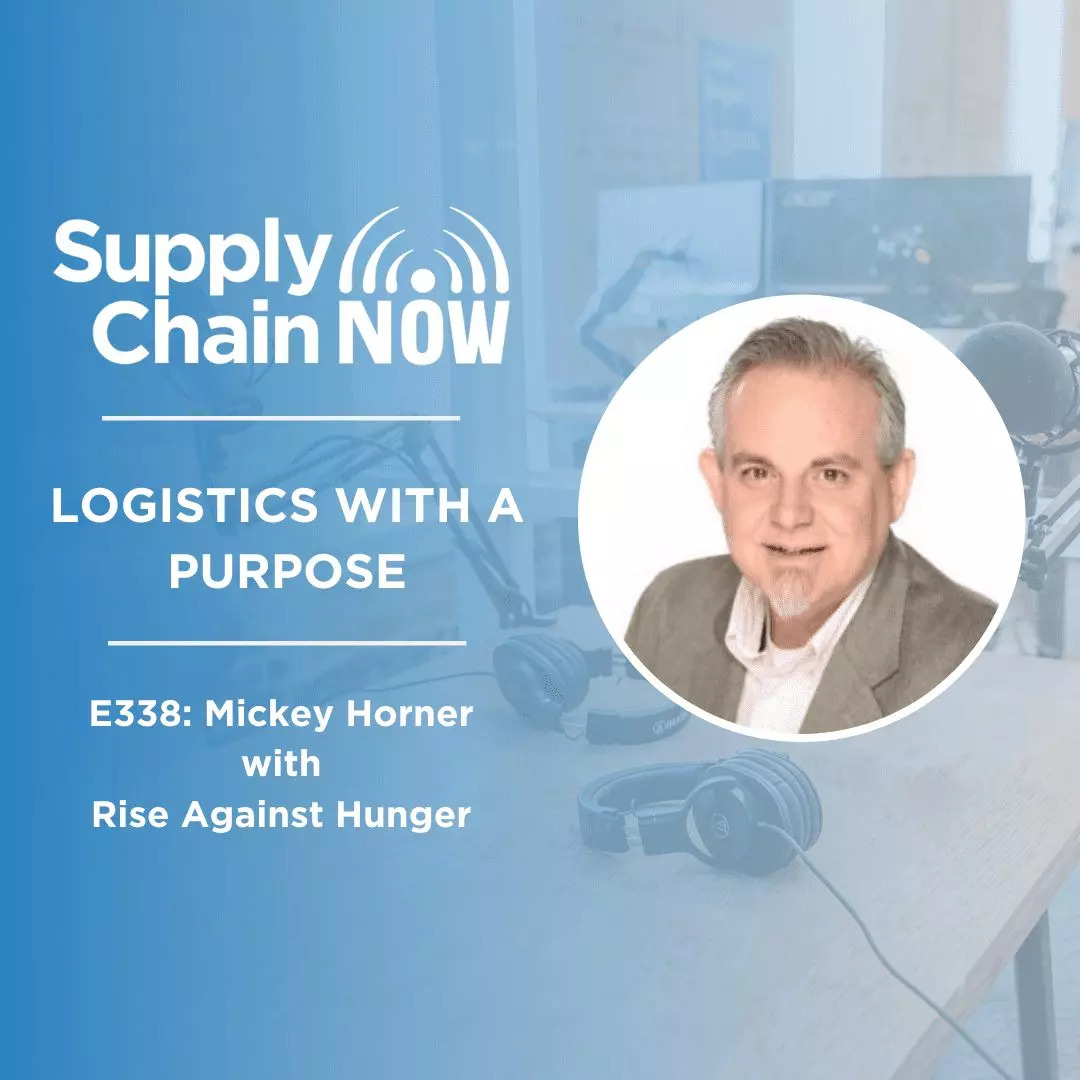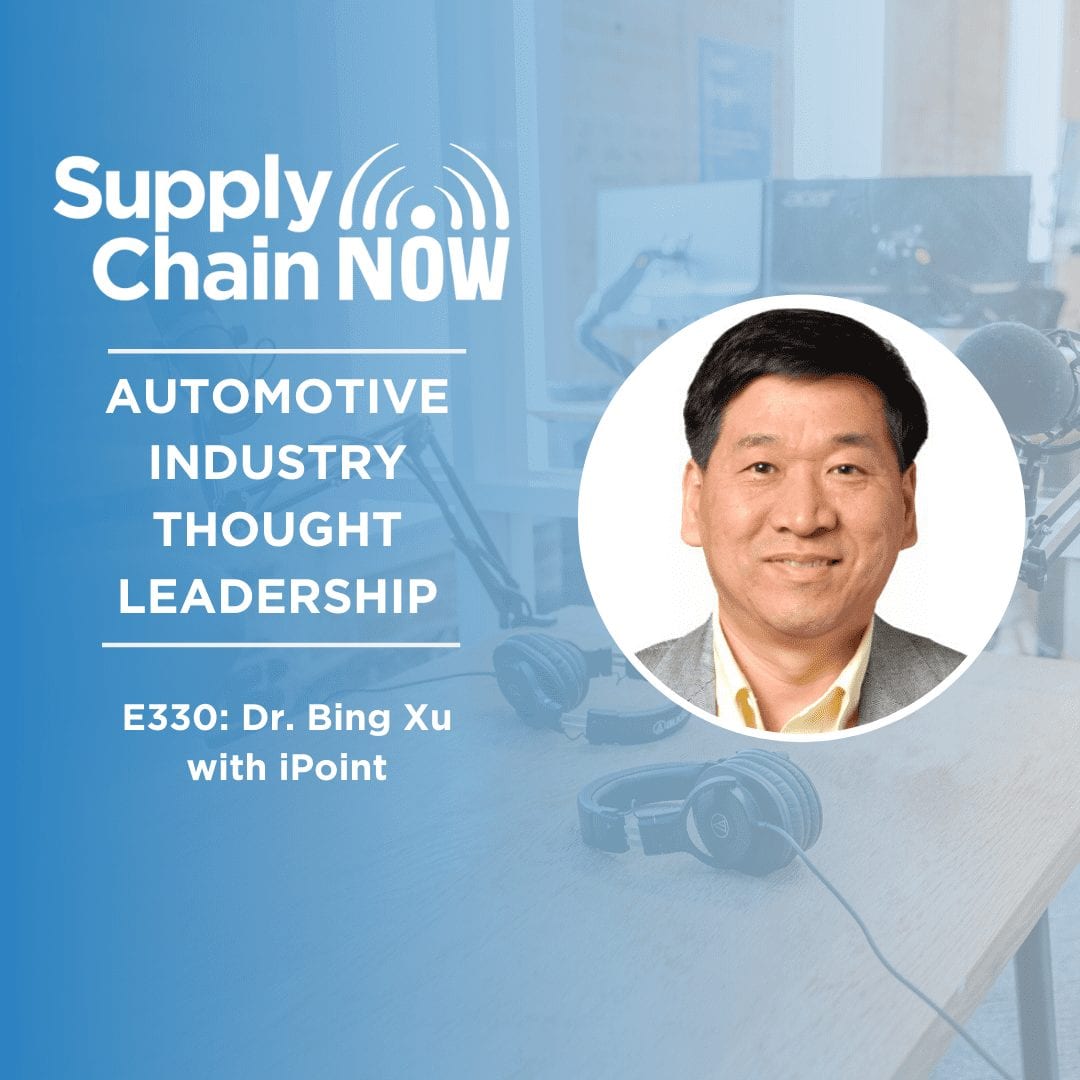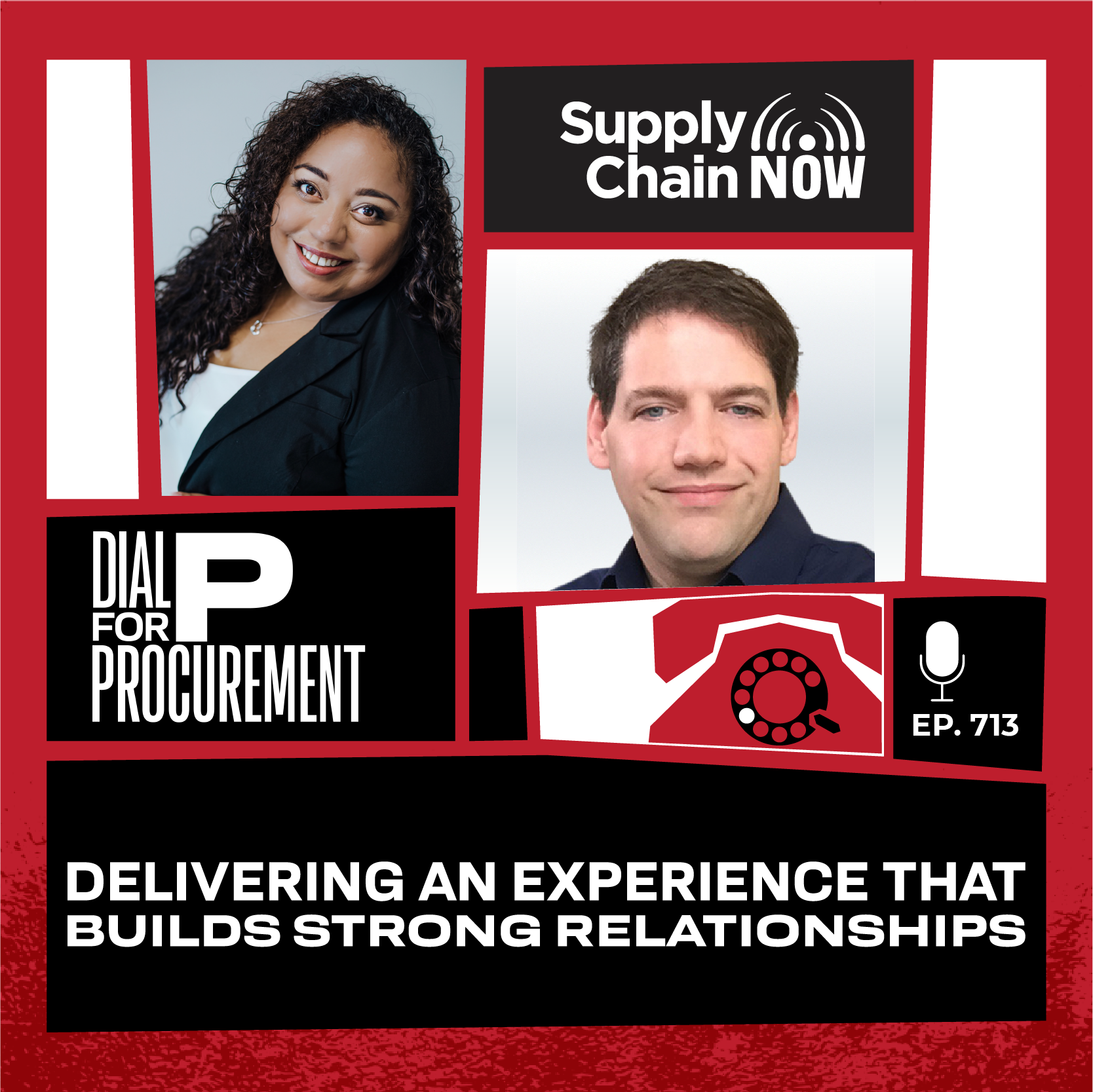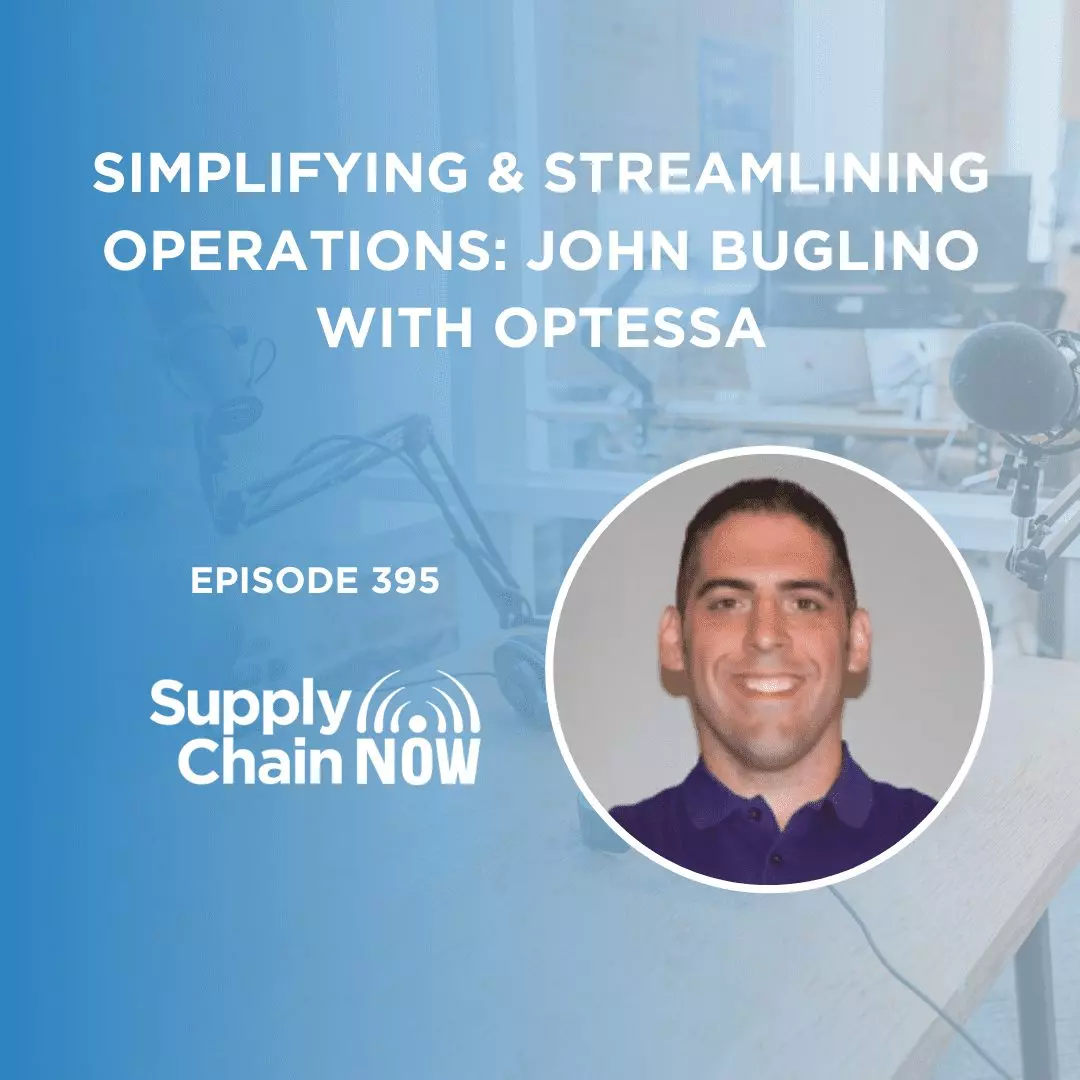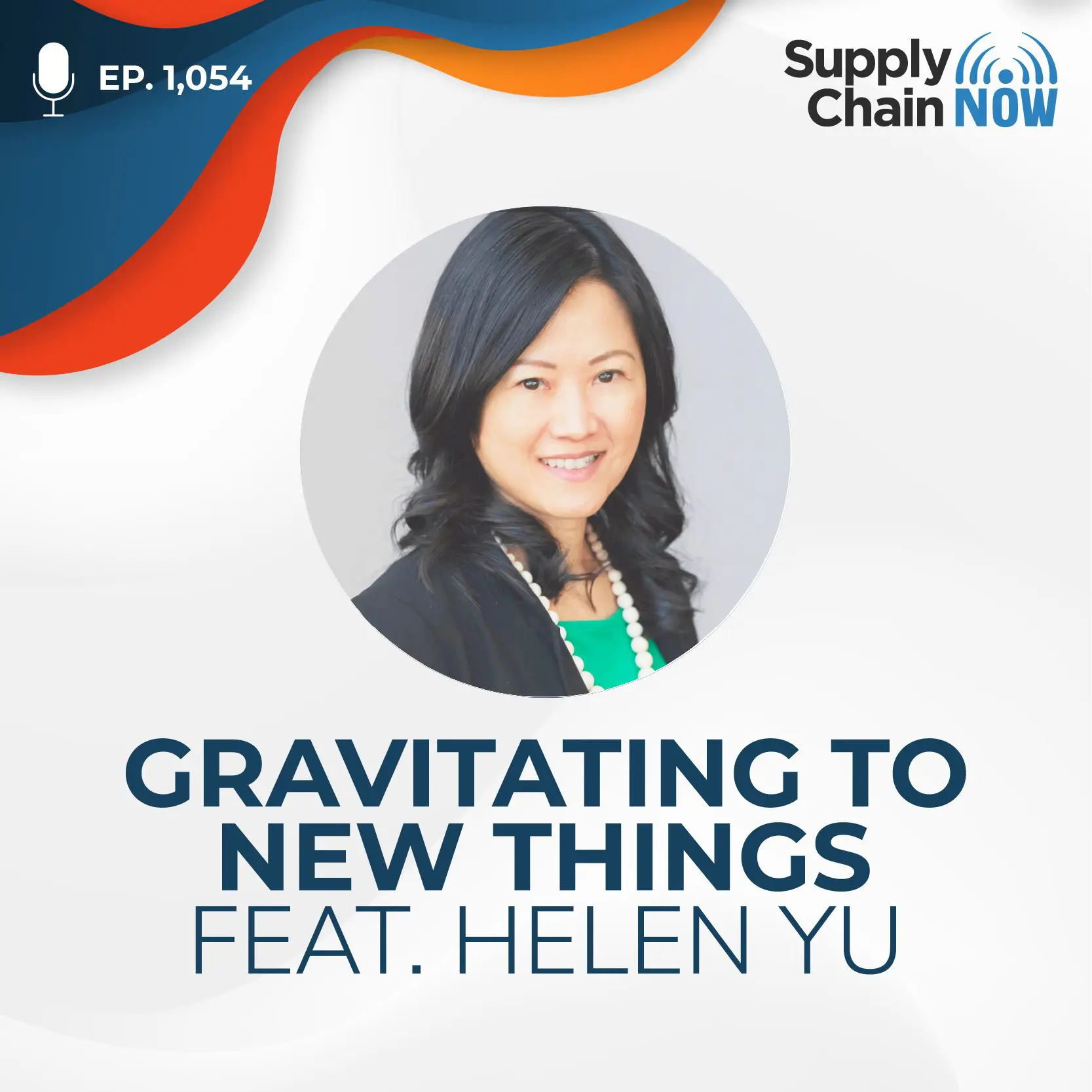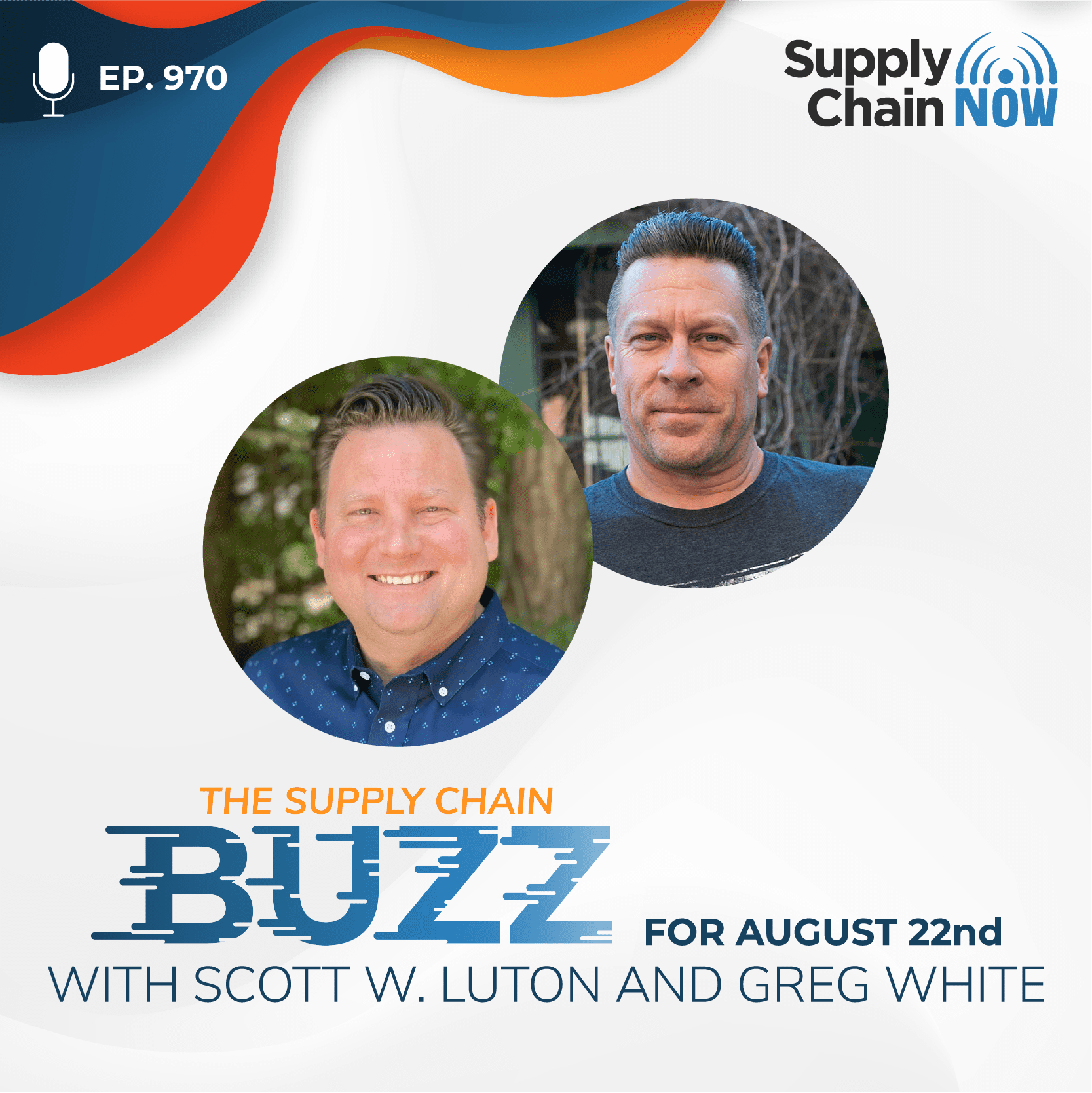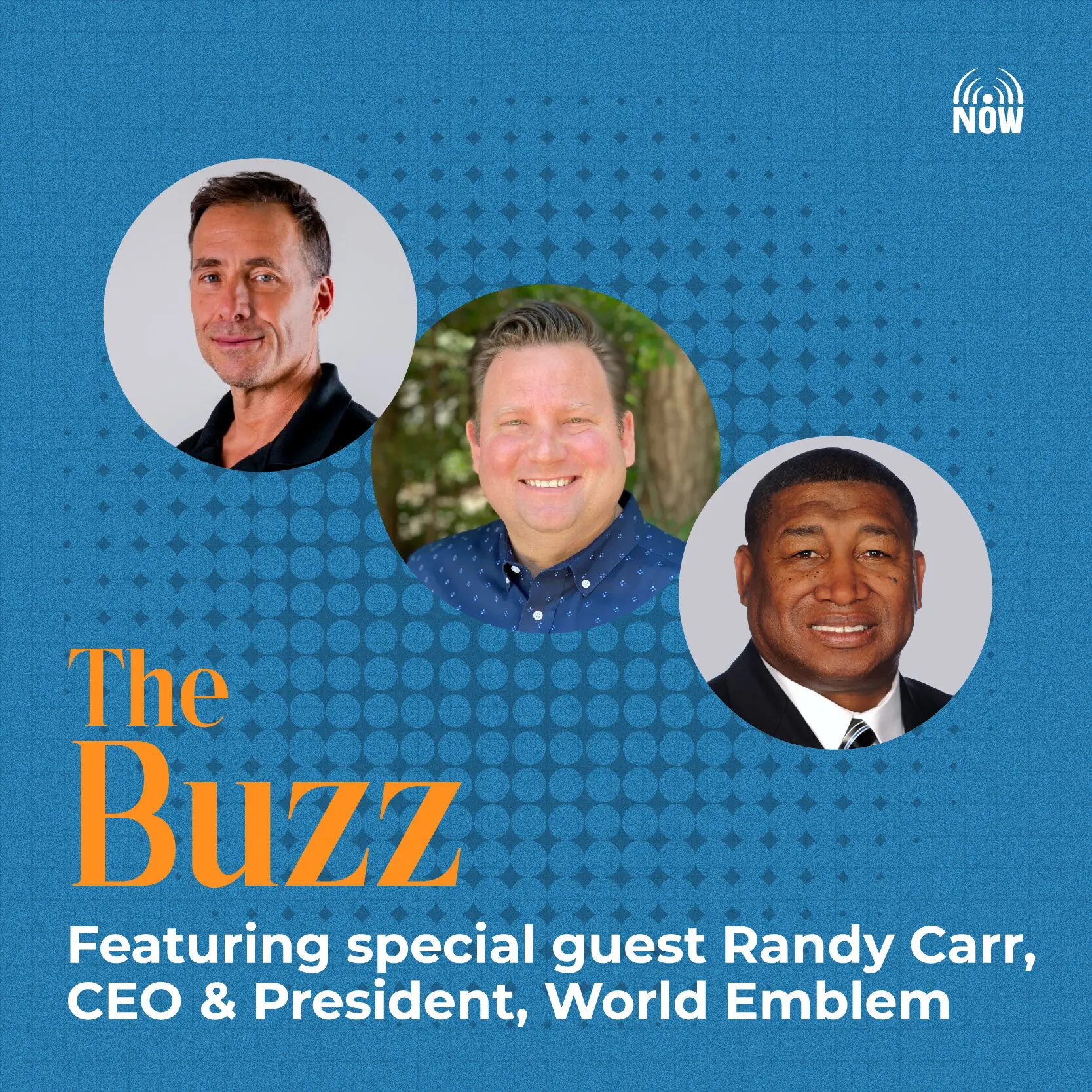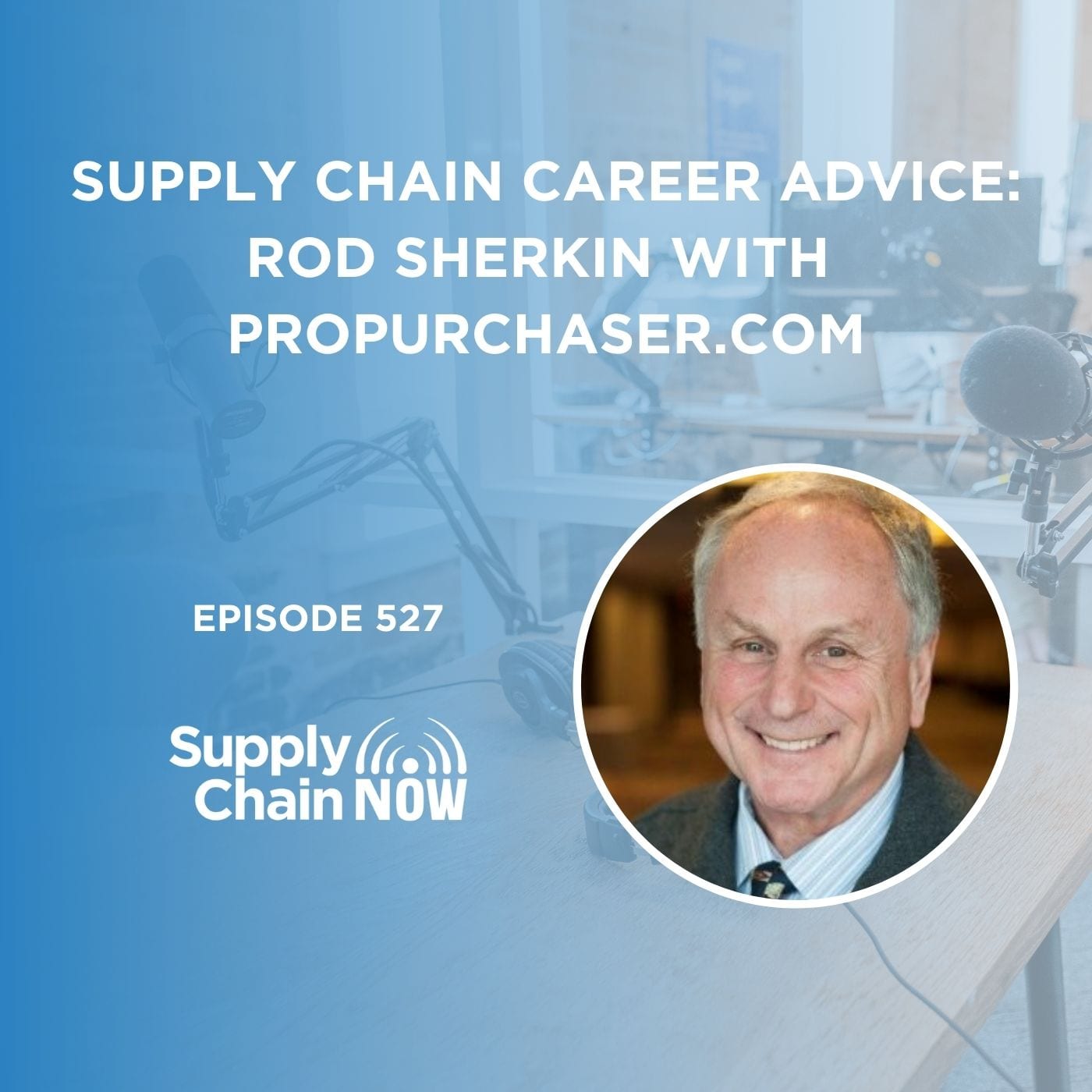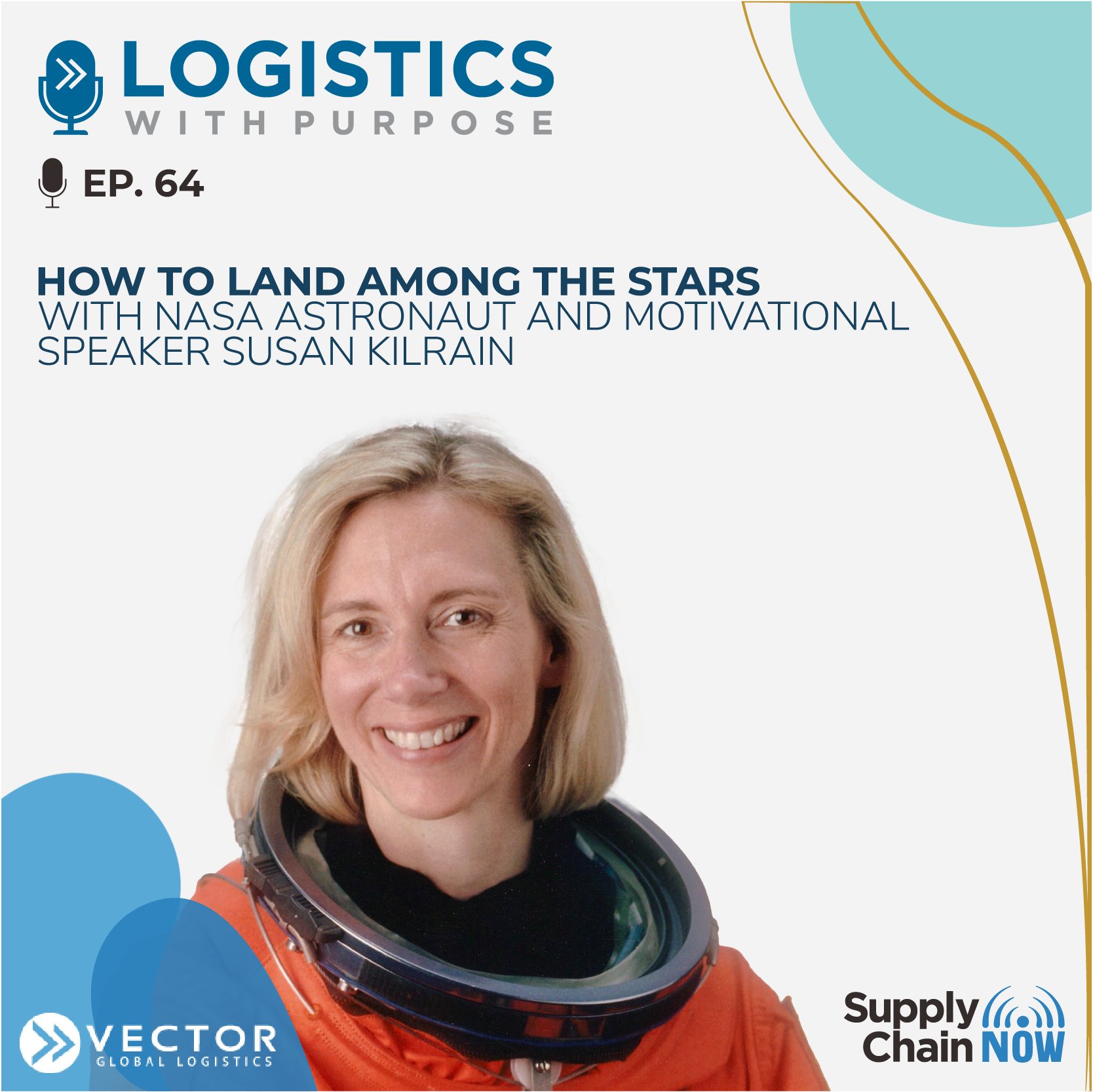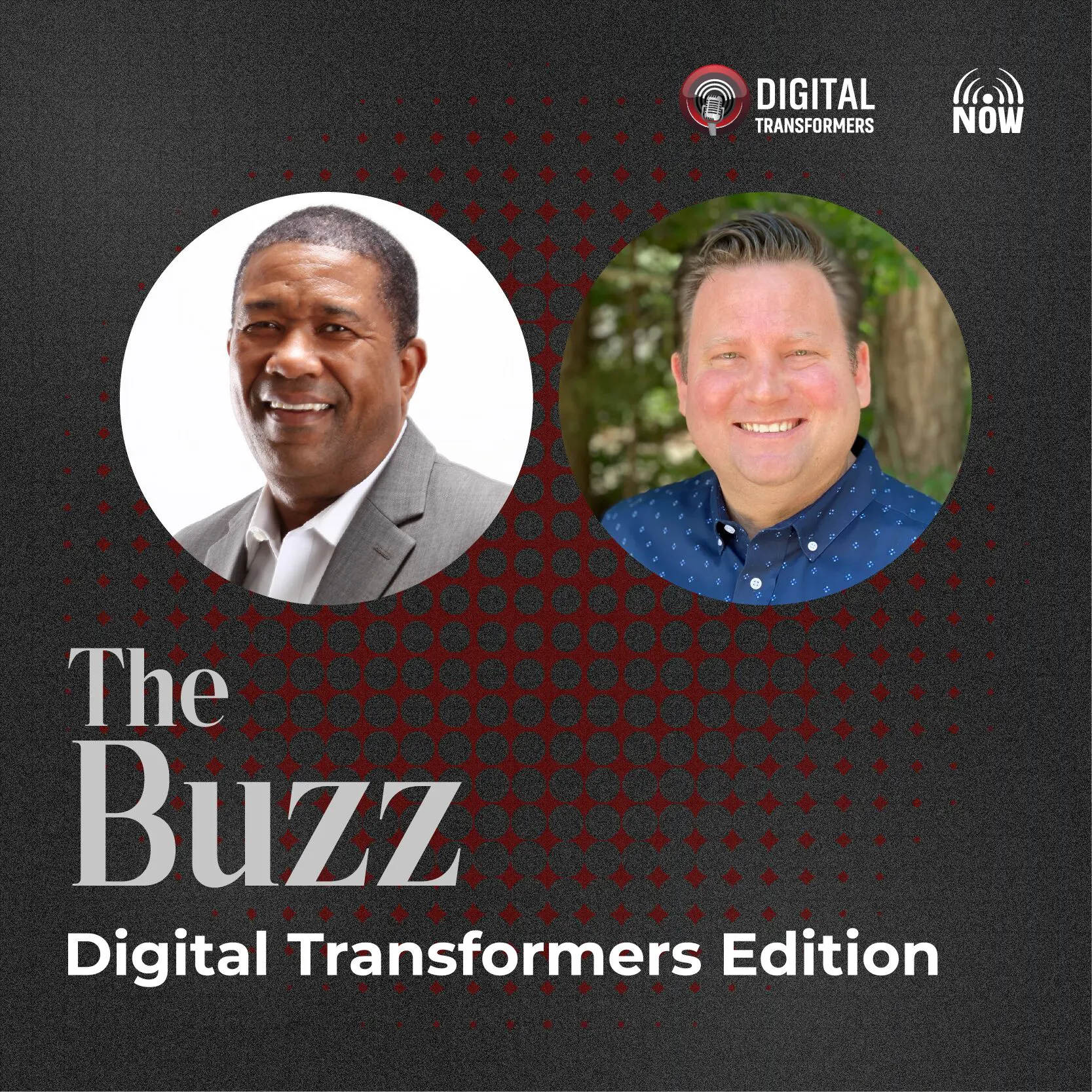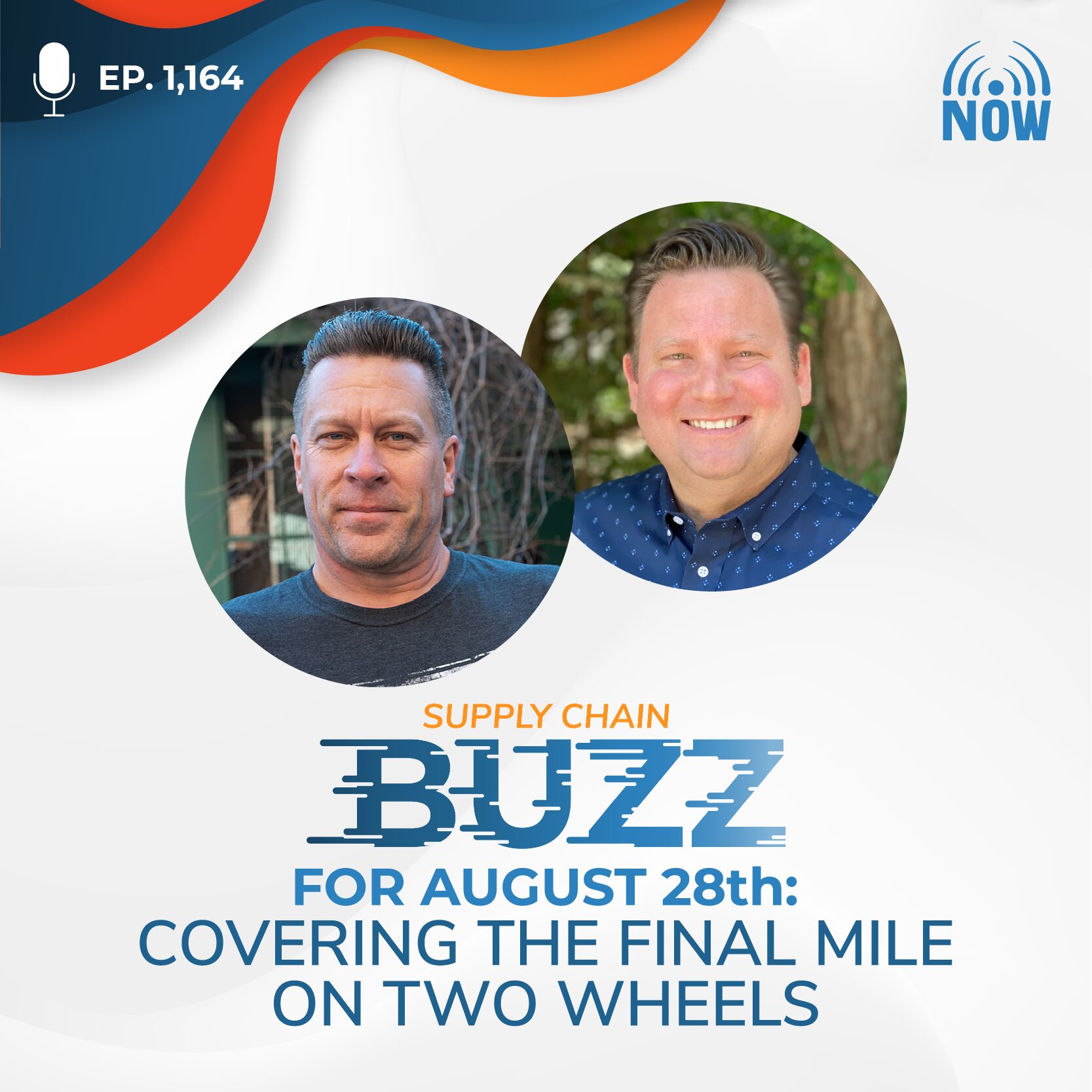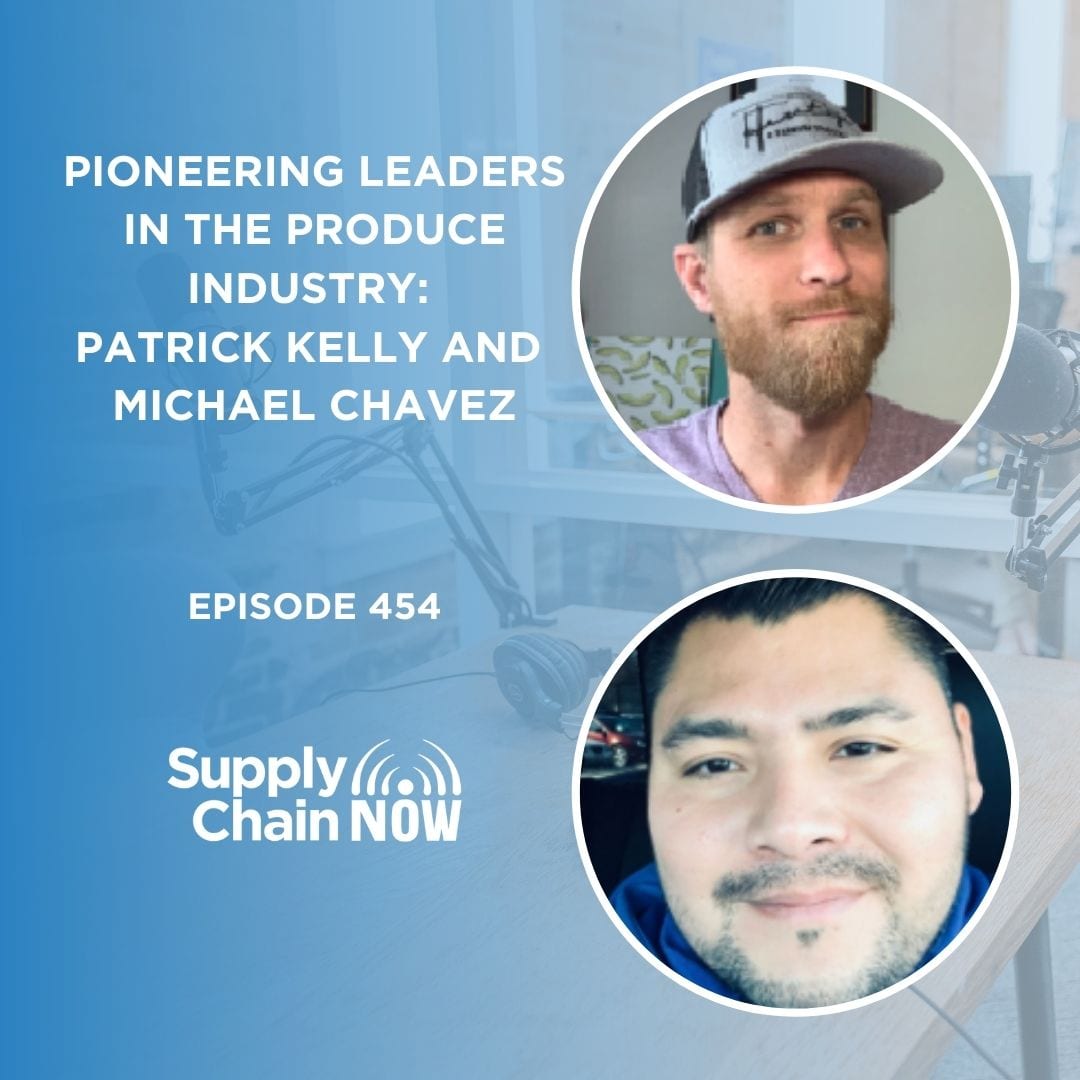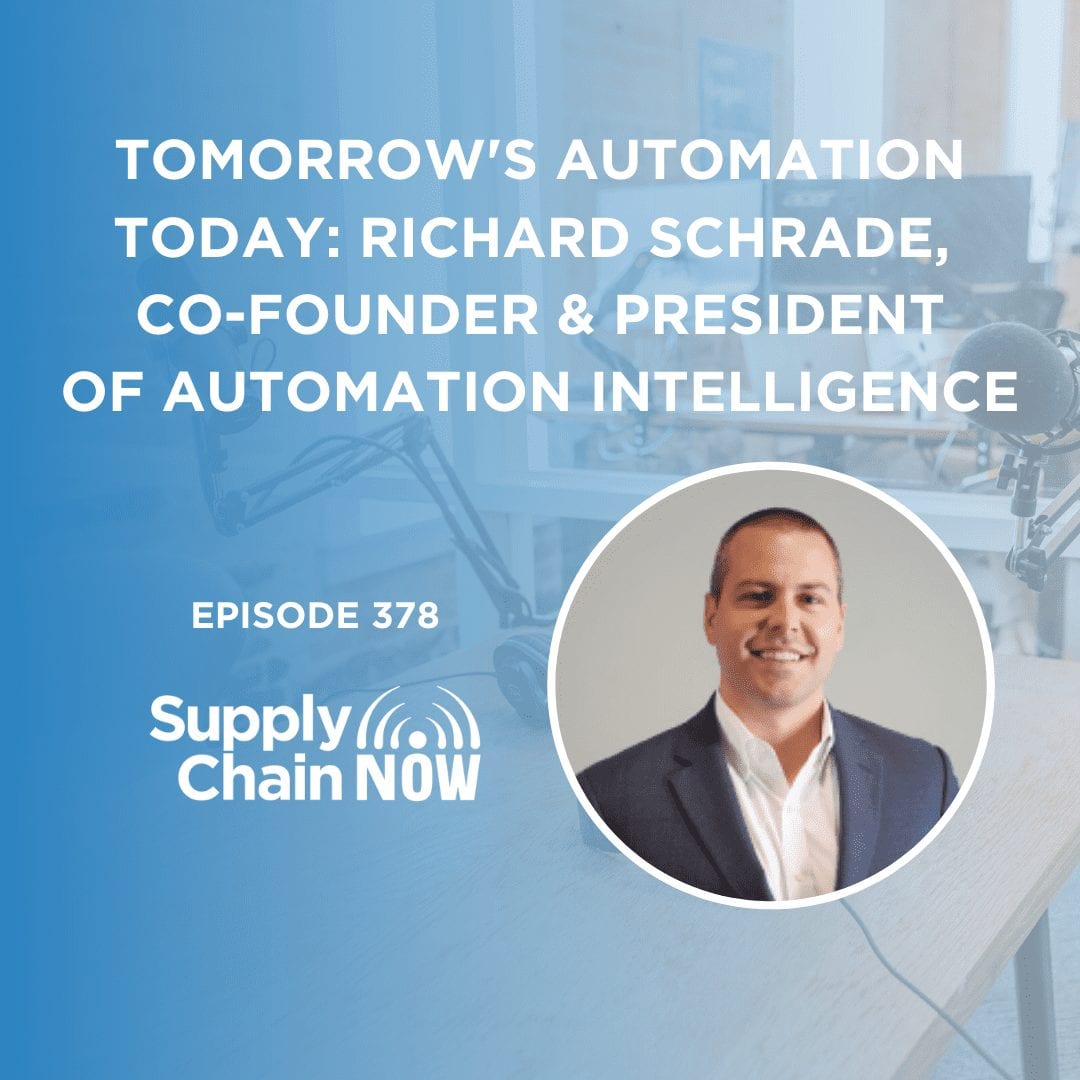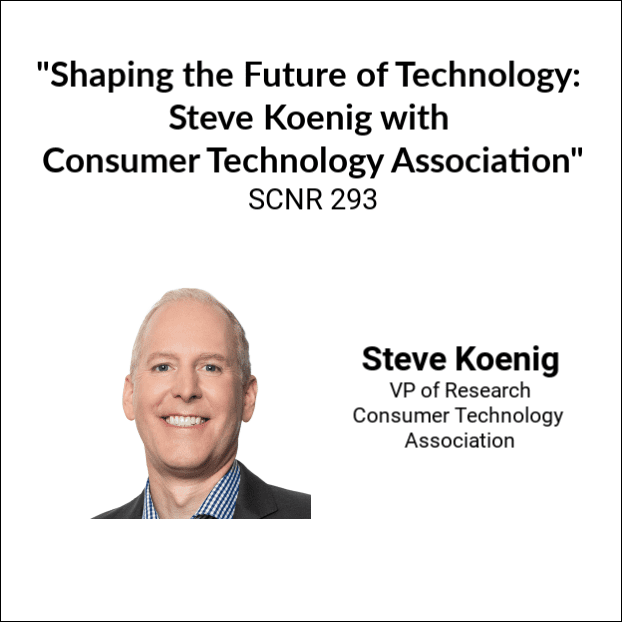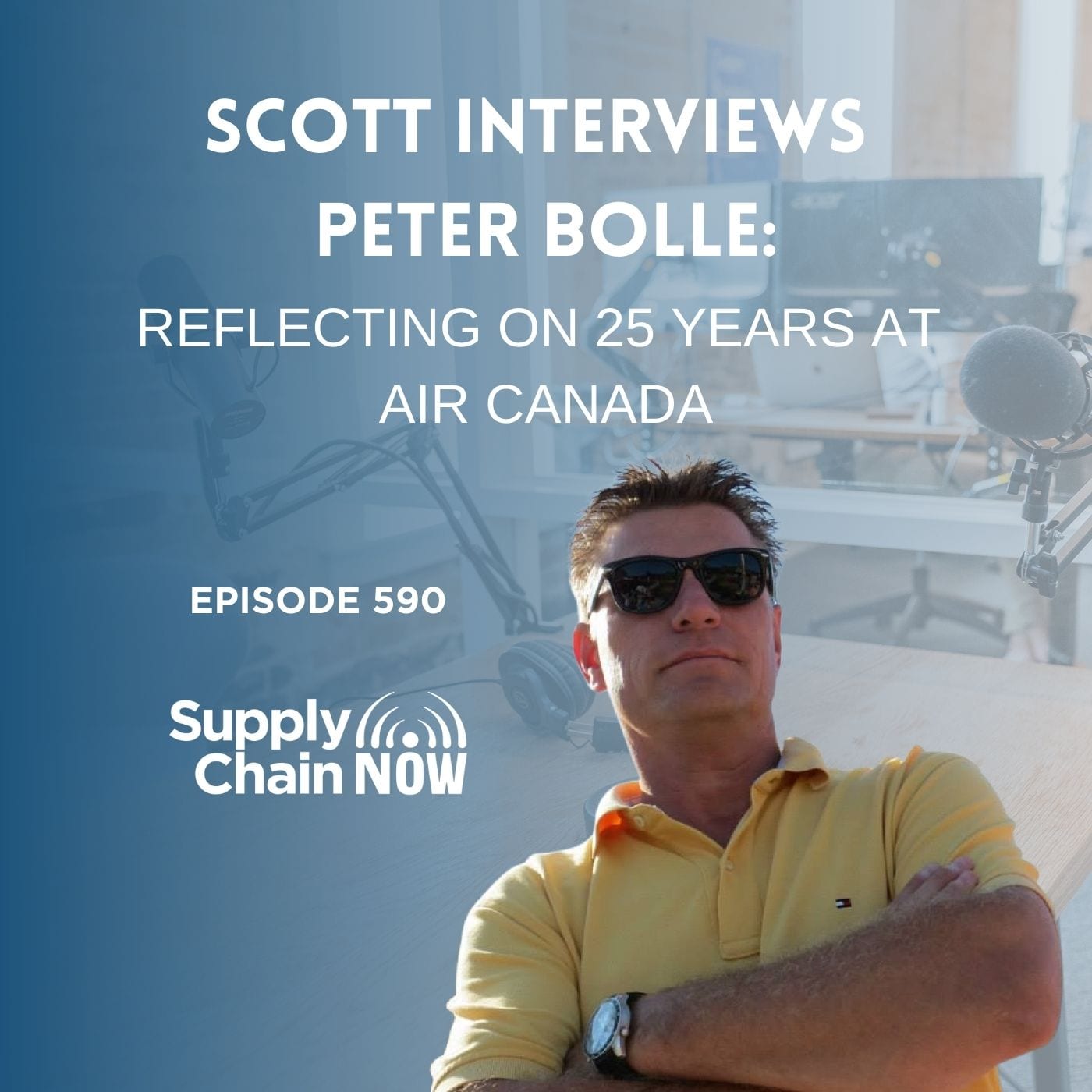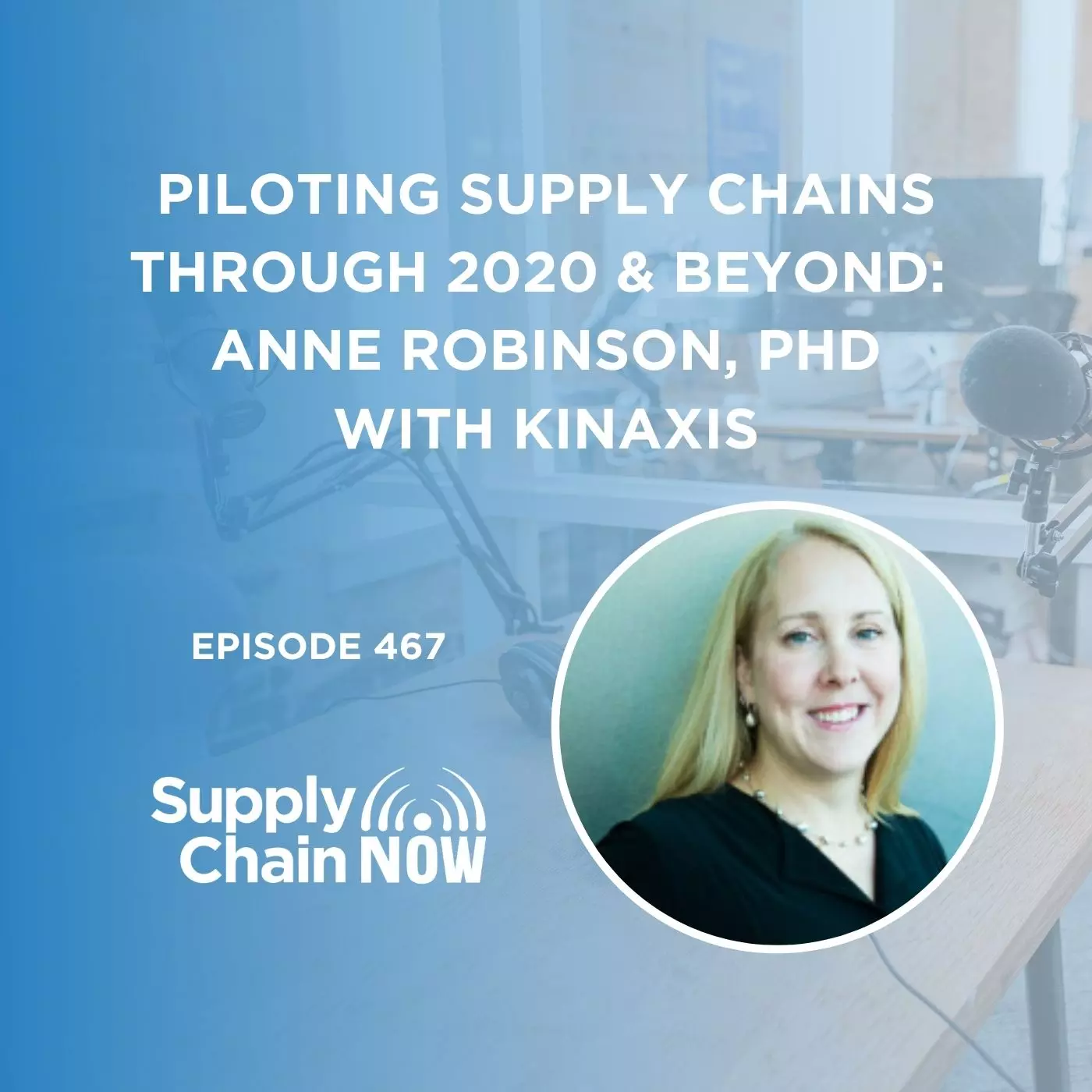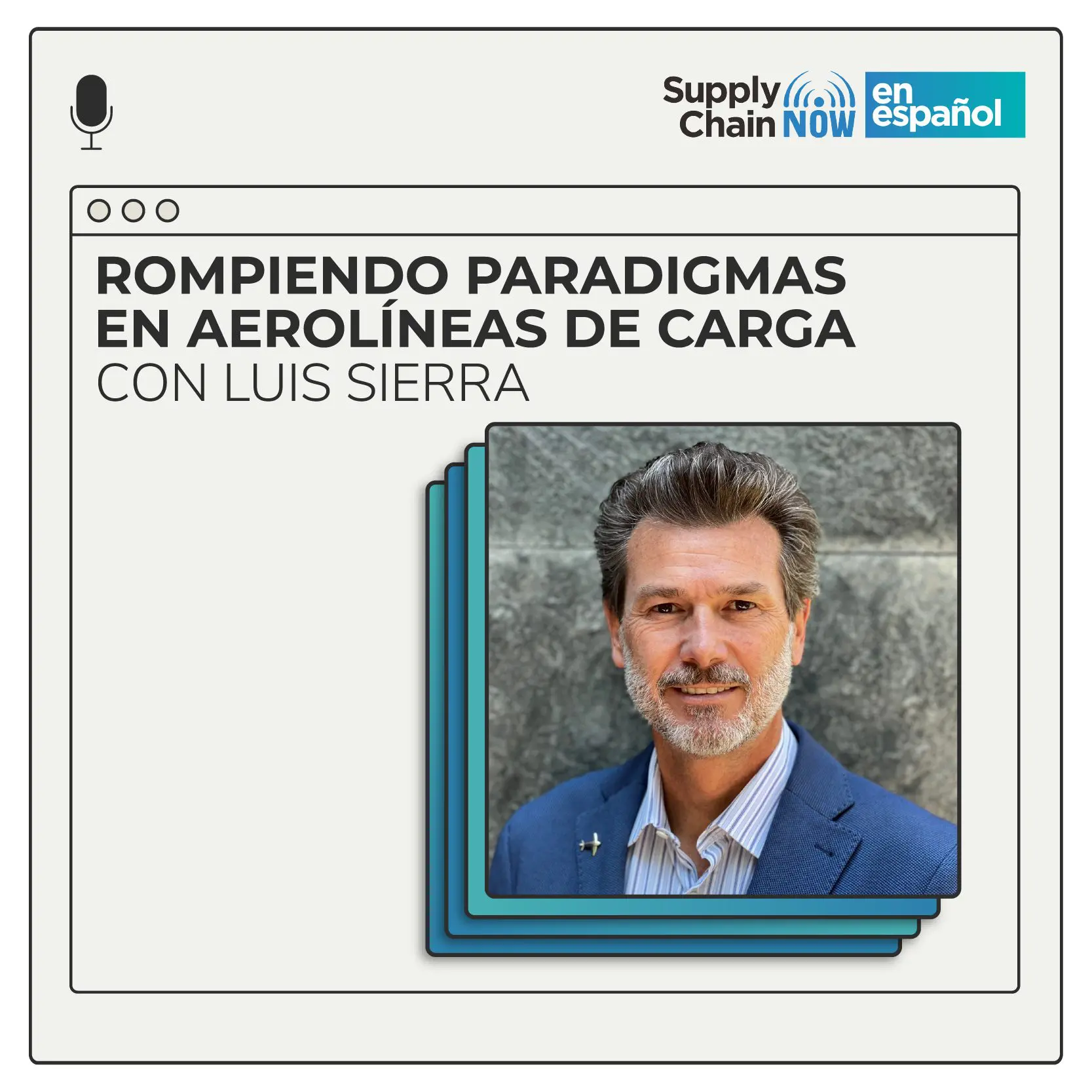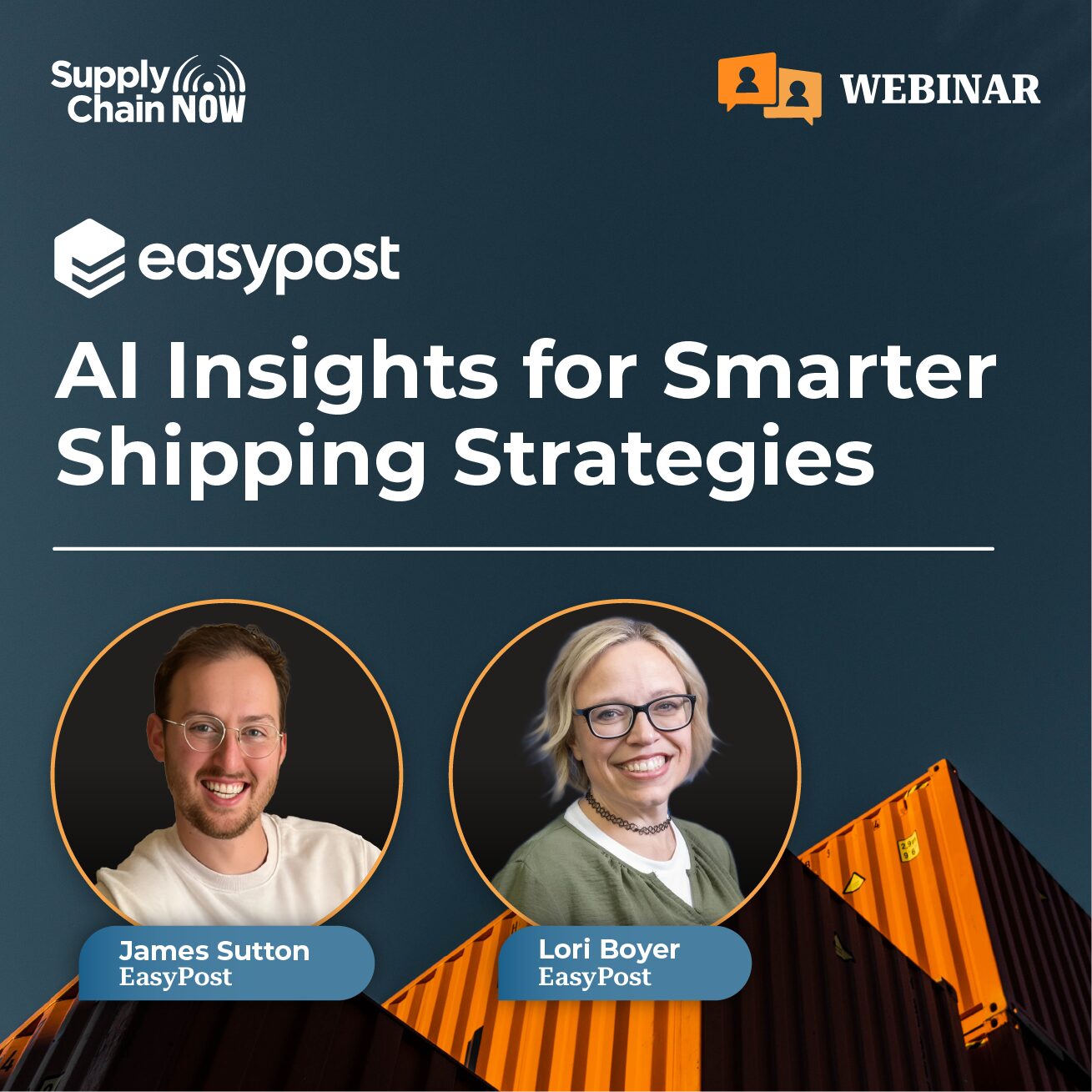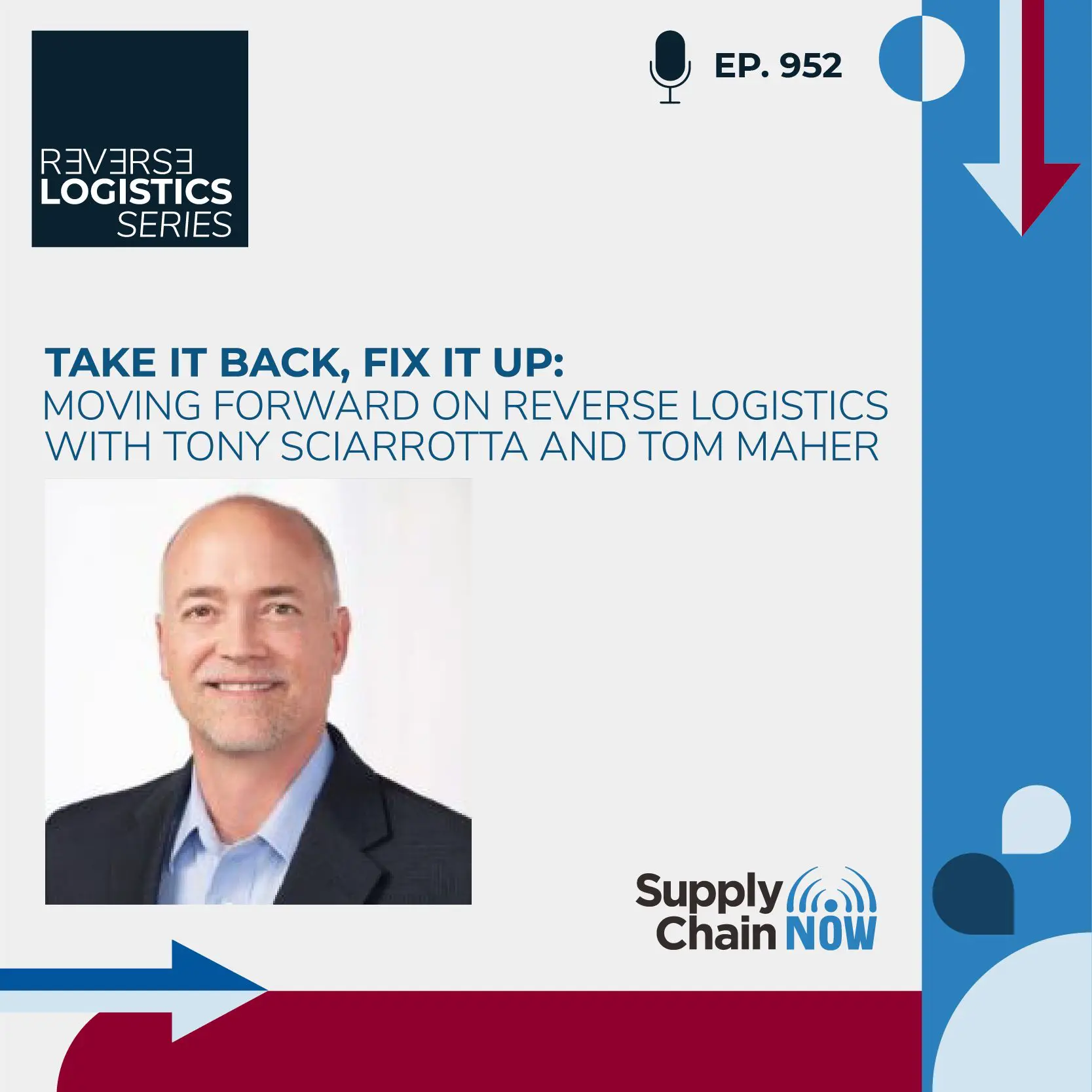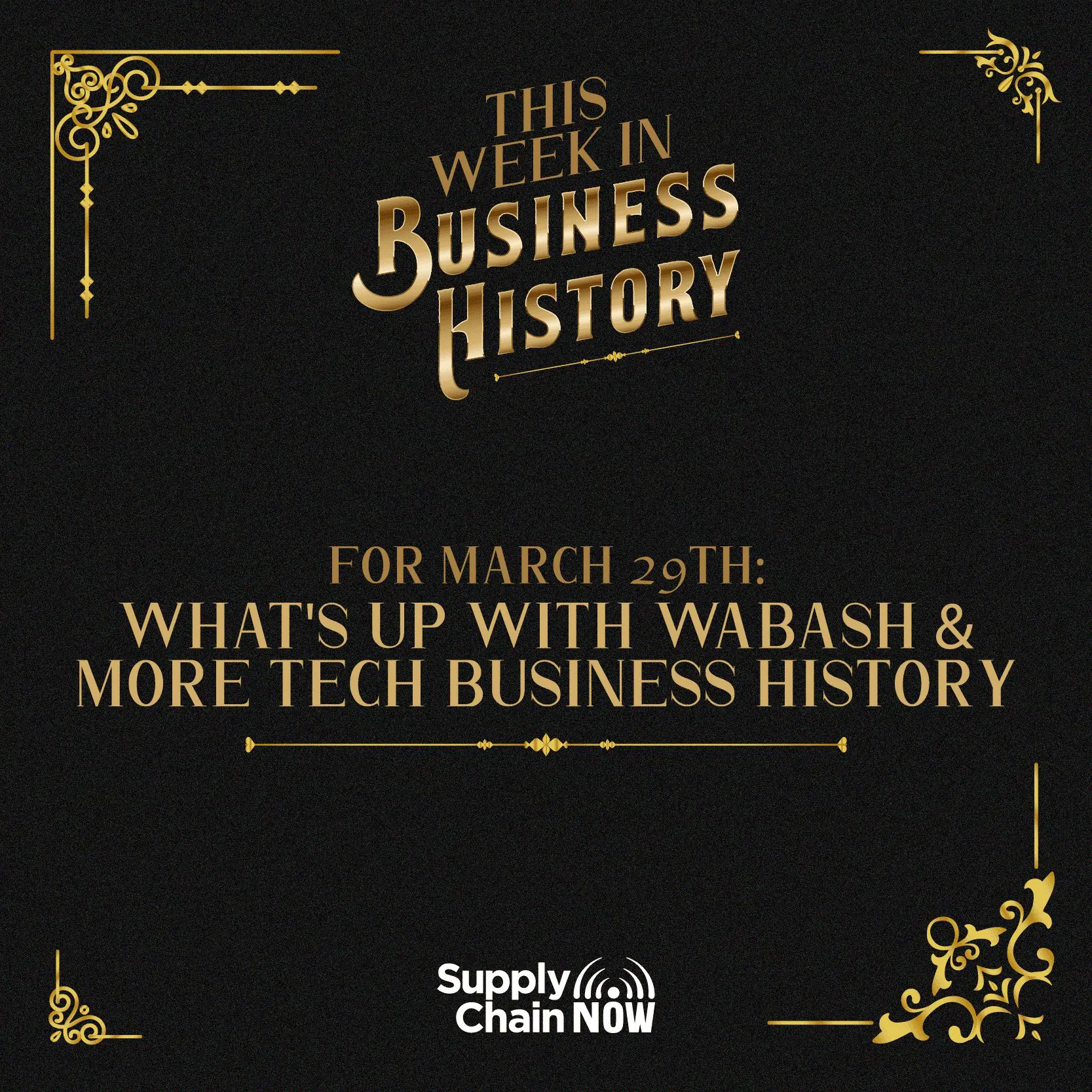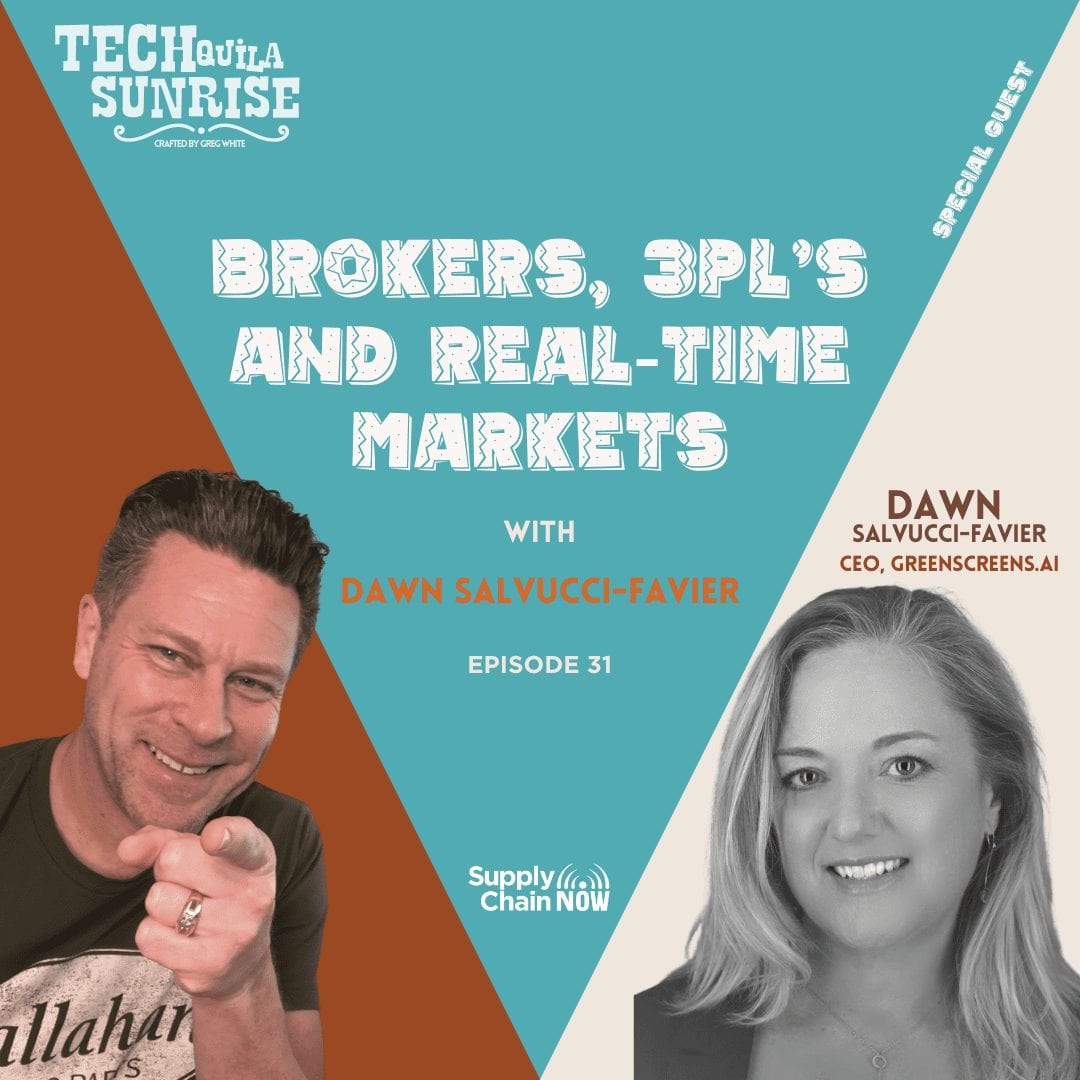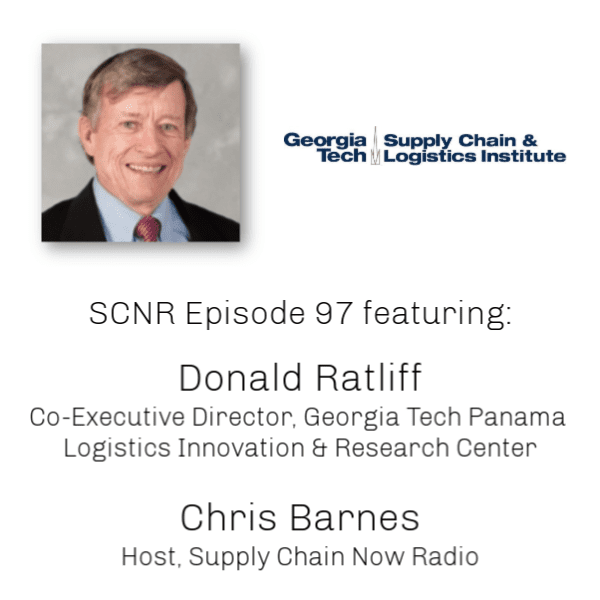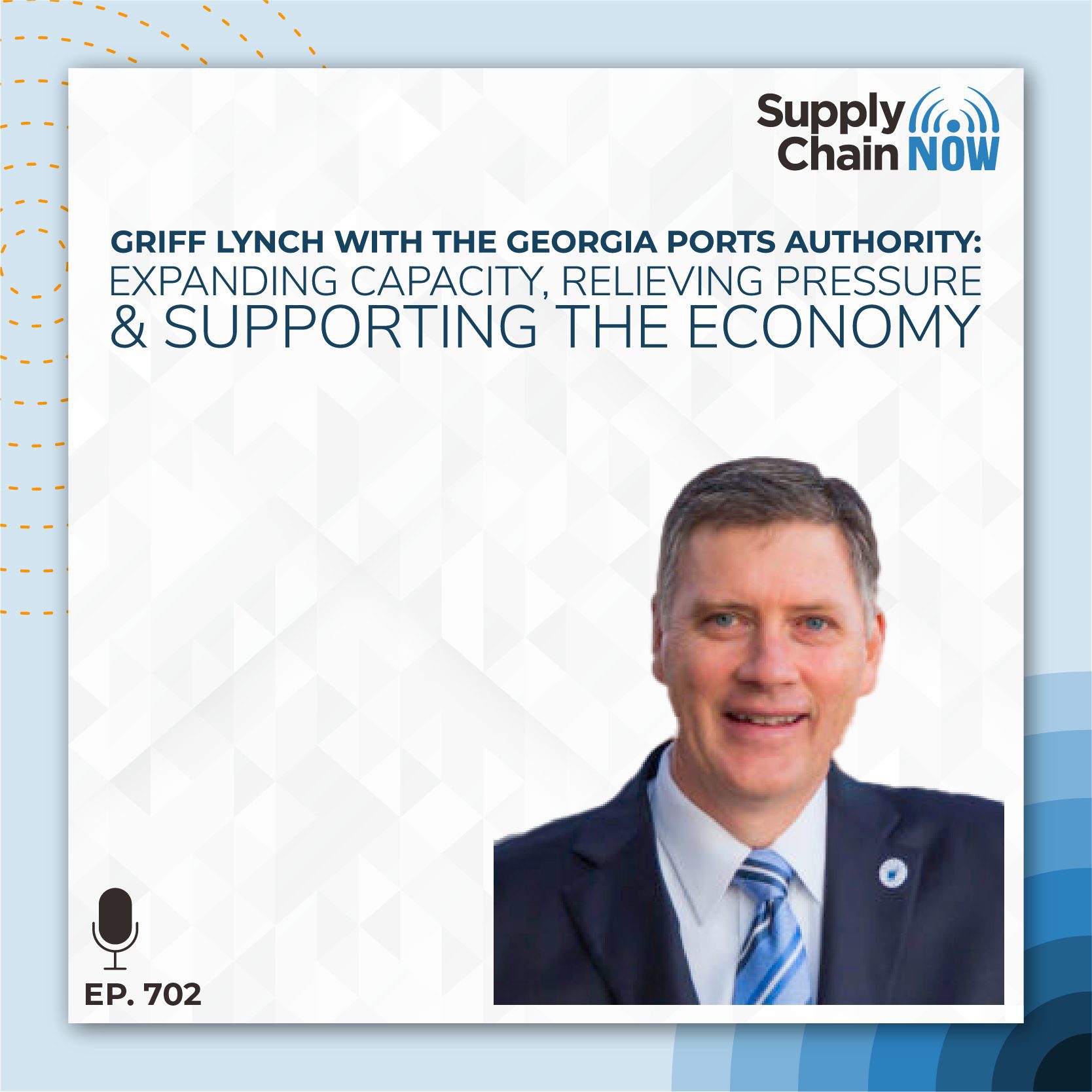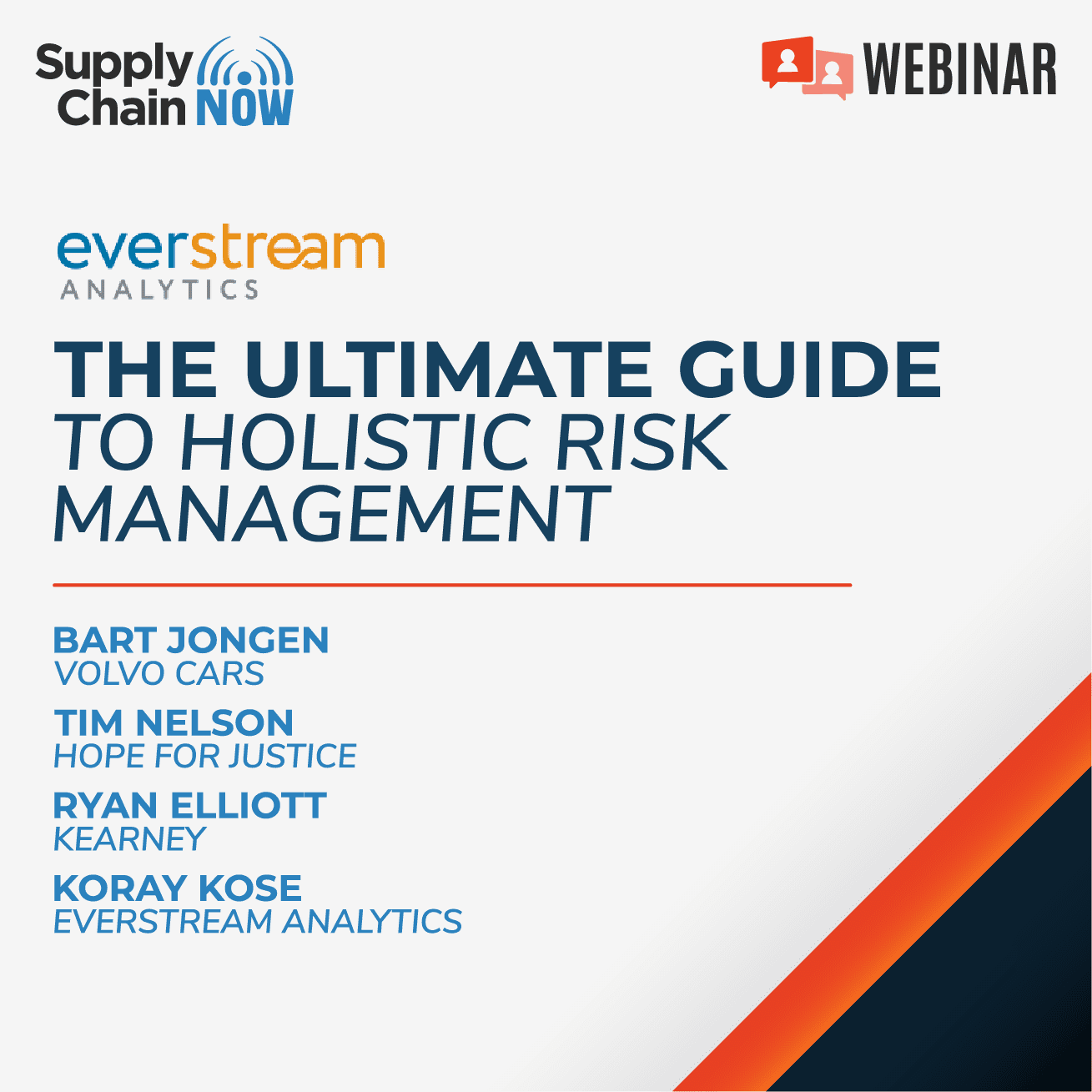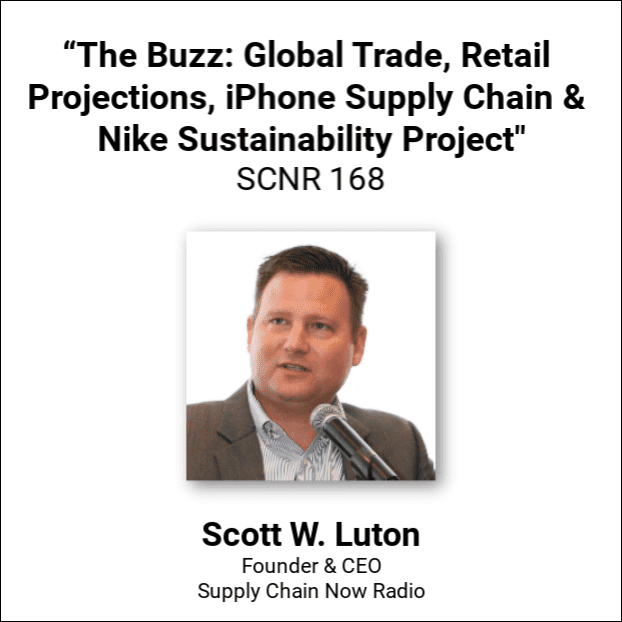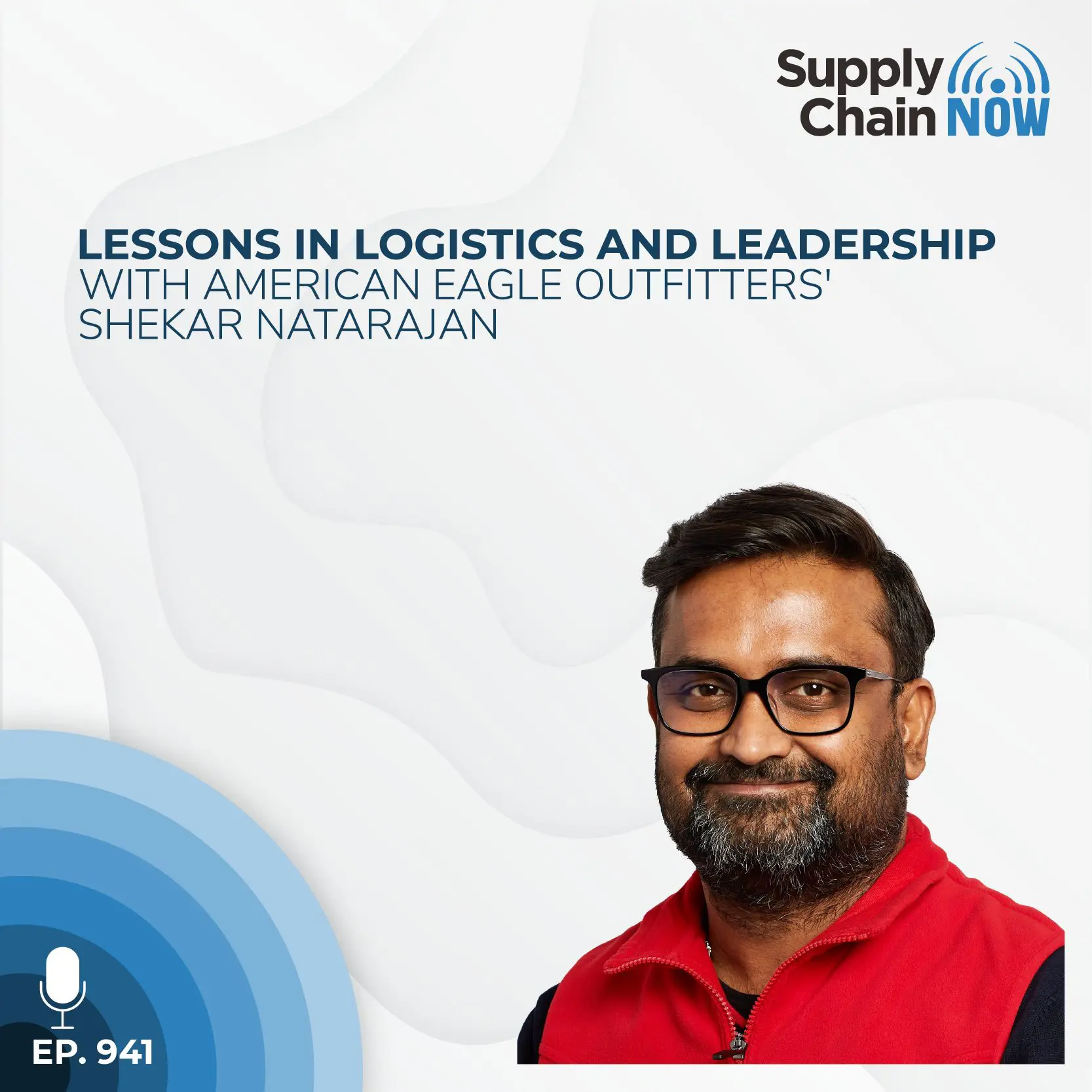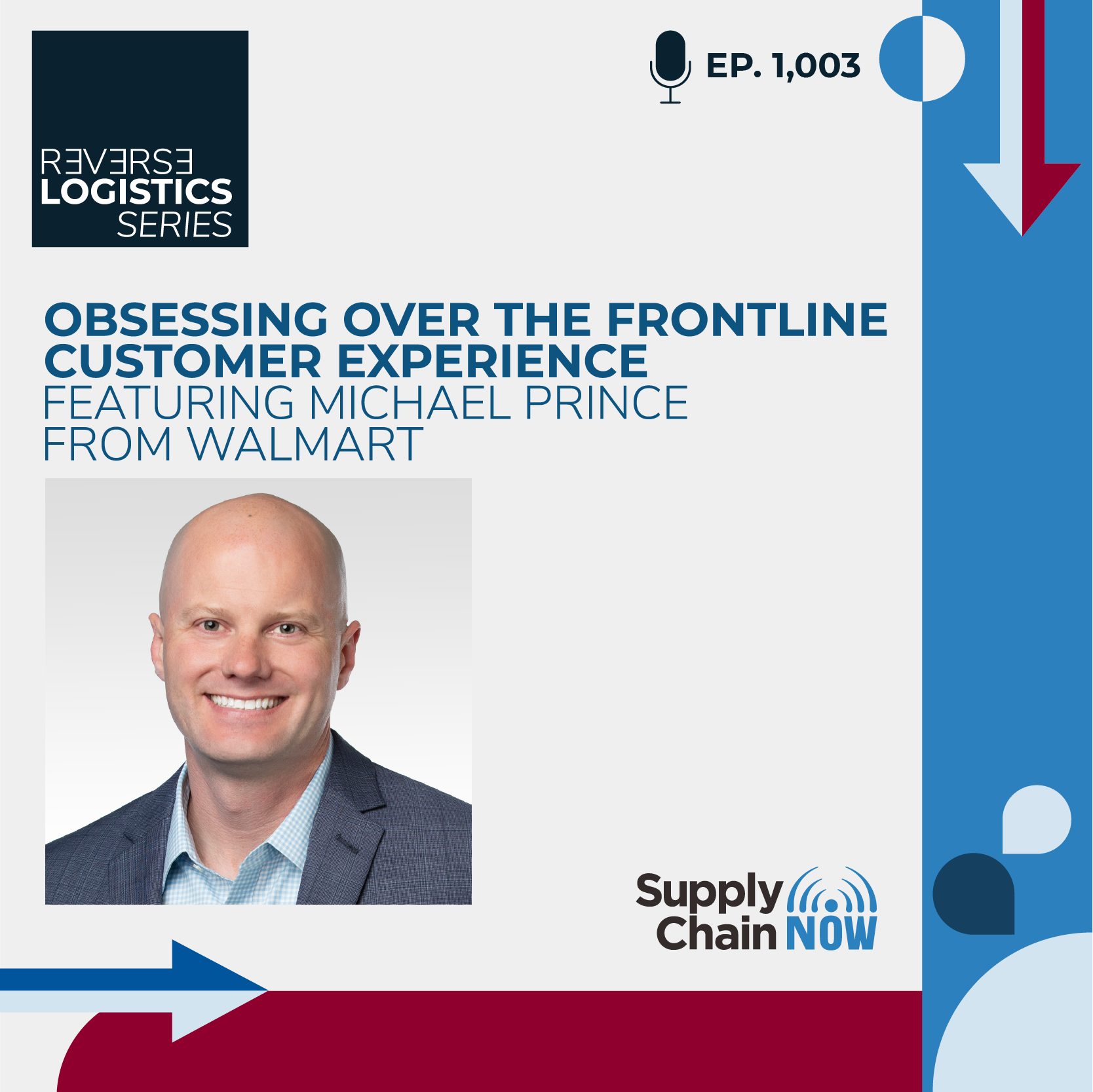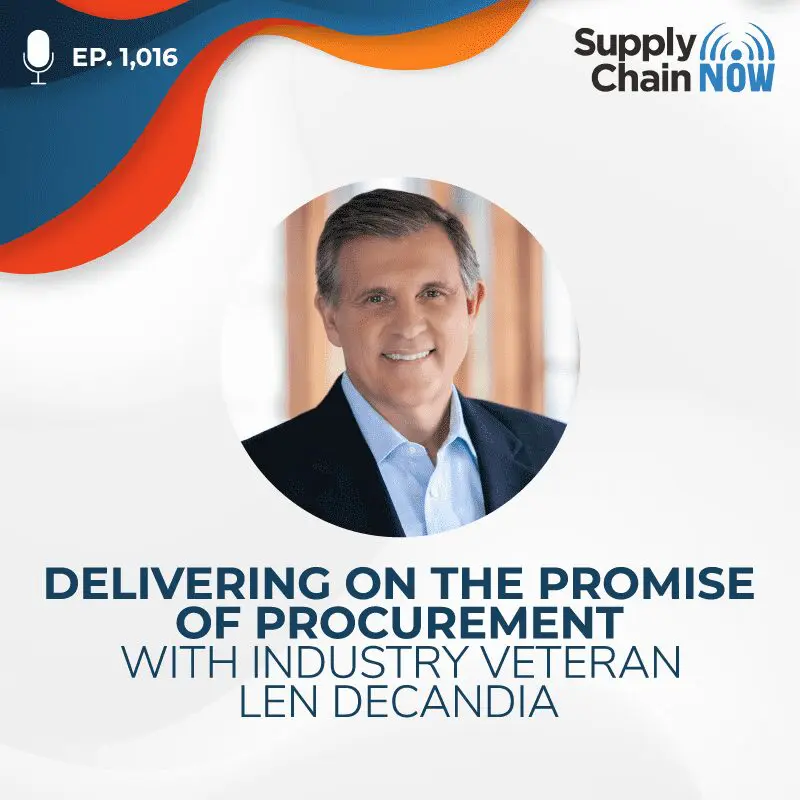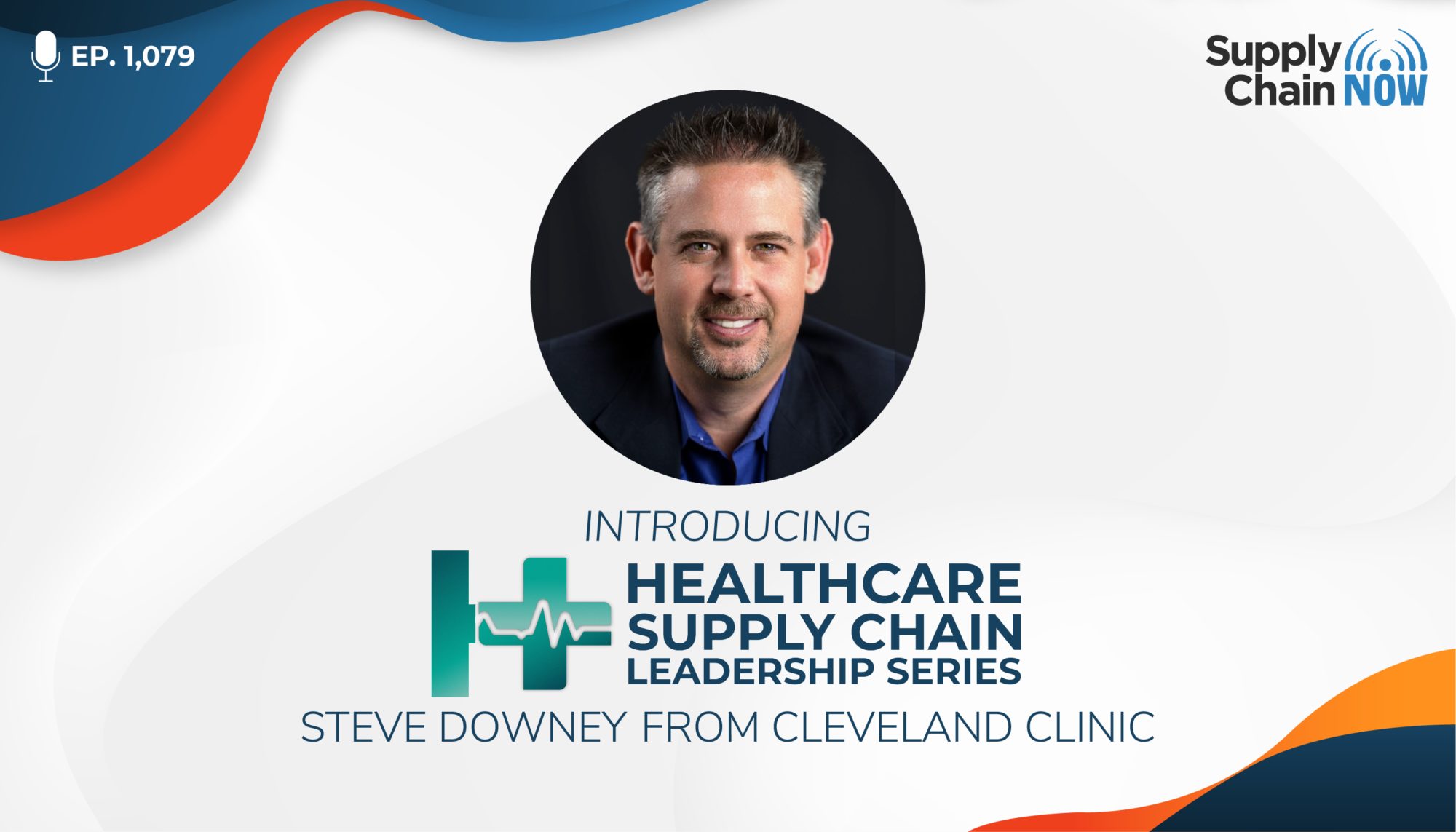
There's no top of the mountain, you're still climbing. You may be getting higher, and it may be getting narrower and narrower but you're still climbing. There's no top.
-Steve Downey, Chief Supply Chain and Patient Support Services Officer, Cleveland Clinic
Episode Summary
All supply chains face complexity, but if healthcare supply chains struggle to operate as designed, people’s lives are affected. This not only raises the bar for performance, but it also increases the dedication shown by the many professionals working to support patient care through supply chain operations.
Steve Downey is the Chief Supply Chain and Patient Support Services Officer at Cleveland Clinic. His multi-disciplinary team has responsibility for a wide range of activities including sourcing, materials management, technology/P2P, analytics and support services, including food services, linen and laundry, and patient transport.
In this episode, Steve joins host Scott Luton to talk about one of the most human-centric supply chains in the world:
• How the effort and investment required to provide comprehensive patient care are a lot like the multi-faceted skills and relationships needed to power sophisticated supply chains
• The incredible collaboration and teamwork taking place behind the scenes at Cleveland Clinic that makes world-class patient care possible, even in difficult situations
• Ways that Cleveland Clinic is investing in their teams and technologies to continue pushing the envelope on supply chain transparency
Episode Transcript
Intro/Outro (00:03):
Welcome to Supply Chain. Now the voice of global supply Chain Supply chain now focuses on the best in the business for our worldwide audience, the people, the technologies, the best practices, and today’s critical issues, the challenges and opportunities. Stay tuned to hear from Those Making Global Business Happen right here on supply chain now.
Scott Luton (00:31):
Hey, good morning, good afternoon, good evening. Scott Luton here with you at Supply Chain. Now welcome to today’s show. Now today’s show, we’re kicking off a brand new series of interviews here at Supply Chain. Now we’re gonna really be really focused in on healthcare supply chain leadership. We all know the immense work, uh, great work moving mountains that that industry has done in recent years. So we’re gonna give, really give voice and amplify their thought leadership. So to kick off this series here at Supply Chain, now, who better to speak with than the supply chain leader behind the organization that Gartner ranks number one on its healthcare supply chain top 25. So, with that said, I wanna welcome in Steve Downey, chief Supply Chain and patient support services officer with Cleveland Clinic. Steve, how you doing?
Steve Downey (01:18):
Thank you, Scott. Great. I think you just gave me a new title, chief Mountain Mover. Is that what it is?
Scott Luton (01:24):
<laugh>, you know, that’s, that’s one of my, my go-tos. I love the notion, the visual that, that, uh, that, uh, generates. And I tell you, um, we have so much respect for all the folks that make up the healthcare industry, not just to supply chain folks. So I really appreciate what y’all do have, have done and continue to do.
Steve Downey (01:43):
Thank you.
Scott Luton (01:44):
You bet. All right. So, but we’re gonna focus more on supply chain here today. So before we get there though, Steve, let’s get to know you a little better. So, so where’d you grow up?
Steve Downey (01:54):
Yeah, I think if there’s a theme from East Scott, it would be rounded perspective. So I was born in England and, uh, to a UK family. Grew up over, uh, in the us so first of the family to move to the US and moved to the northeast, lived in Connecticut and then Louisiana, and then settled in New Jersey and spent most of my time growing up in New Jersey, Pennsylvania area. So, uh, became an Eagles fan.
Scott Luton (02:21):
Okay.
Steve Downey (02:21):
And, um, grew up in that. Now, I guess that also carried into my career. I always carried that kind of rounded perspective. Mm-hmm. <affirmative> mom was a teacher, dad, a businessman, and brought me on some of his international travels. So I always got a feel for what was it like to be in the commercial side, but I’ve always had that kind of help others service mentality that came from mom being a teacher. And I think that carries in healthcare supply chain, too.
Scott Luton (02:49):
Uh, I completely agree, man. I got a thousand questions, <laugh> for limited time. So I’m gonna start, you know, we love talking food here. And if I followed your journey there from UK to Connecticut to Louisiana, and then back up to New Jersey, is that right?
Steve Downey (03:03):
That’s right.
Scott Luton (03:04):
So I can only imagine all the different types of, uh, cuisine that you’ve been able to enjoy. I if you think of your formative years, your growing up years, what’s one dish that is still one of your favorites today?
Steve Downey (03:16):
You know, it’s that UK background fish and chips
Scott Luton (03:20):
Off the real deal, right?
Steve Downey (03:21):
The real fish and chips. Any chance I go back to London? We just opened an operation in London this year, and I went back over and visited and got real fish and chips. But, you know, it’s become a staple on so many places over here as well. But it’s always good when you get a good fish and chips.
Scott Luton (03:36):
All right, Steve, so you’re making me really hungry with fish and chips, man. I love really good fish and ships. I’m gonna ask you the expert. Where, where can you go to get the real deal of holy field when it comes to, uh, fish and chips?
Steve Downey (03:47):
Find a local fish and chip shop or pub in England, and generally the best, the, the local chip shop that you can get a, uh, a chip putty, french fries on buttered bread and your, your fish there with vinegar and everything. That’s a very English local fish and chip shop specialty that frankly the US hasn’t really figured out yet. <laugh>, um, you can find some incredible stuff,
Scott Luton (04:20):
Man. Okay. So now that you’ve, you’ve made me starving, hungry for sufficient ships <laugh>, um, I want, I wanna get into a little better. So, you know, Cleveland Clinic, uh, is one of those, uh, brands that you hear and, and it’s like, you know exactly what it is, right? But I wanna level that a bit. You know, uh, Cleveland Clinic, um, iconic organization in the healthcare industry. It’s been doing big things, moving those mountains that we talked about in healthcare get this for more than a hundred years. So to level sit with our listeners, tell us about Cleveland Clinic and your role there.
Steve Downey (04:51):
Yeah, a amazing organization and, um, been around for providing kind of highest level of patient care for over a hundred years. We are, uh, global and I think that’s one of the unique things about the clinic. We have, um, operations in northeast Ohio and Florida and Las Vegas and Canada and Abu Dhabi in London. And, uh, show a lot of global perspective that comes from that. And they’re 77,000 employees across the clinic. In our supply chain, we’re spending four and a half billion, so very large kind of span. And so across all of those kind of operations, very driven, um, by patient care, by making sure we can provide our level of care and really came from a culture of a team of teams. I think that’s a really key point about the clinic. We are about the patient and we are about surrounding that patient with all the best possible components of care. And frankly, supply chain works the same way. And I think if you’d asked me what’s the surprising part, um, that that team of teams approach, where we come together and, and pull the experts of everywhere we do, the patients feel that when they get all the expertise serving them, and I feel it when we solve supply chain problems.
Scott Luton (06:17):
Hmm.
Steve Downey (06:17):
So in my role, you asked about, uh, yeah, the scope of that. So let’s say I have supply chain, which covers all things like sourcing. We are very broad in our sourcing work. We’ll do clinical spend, indirect spend pharmacy. We do things like construction and hr. And, uh, so the clinic has gone far into the scope management of having us handle all those aspects and all of the operational aspects, bringing supplies everywhere. We’re unified across the nation. So we have the same technology, the same processes, in fact, oftentimes same stuff. And so all across all of the bits of supply chain and purchasing and material movement. And then this patient support services side, you mentioned that has food patient transport, our red coats program, which is our kind of customer service program, which by the way had to change branding when we went to London, if you can imagine
Scott Luton (07:18):
<laugh>.
Steve Downey (07:19):
And the, uh, so it’s all of those aspects, if you think of it as kind of a shared service across a lot of operational pieces, that’s what, uh, we serve.
Scott Luton (07:28):
Hmm. All right. So you’re painting the picture of very large organization, I think 77,000, uh, uh, team members, 4.5 billion in terms of supply chain spend. Um, you’ve got several full plates in terms of your role. And of course it’s a global and growing organization. Um, I think a lot of our listeners in global enterprises, there’s a lot that they can relate to there. But of course, healthcare the ultimate, um, measurable, you know, the health of patients, you know, life and death in many ways. I mean, how, how, how do you square that? I mean, you know, when you look at other supply chain leaders and, and not picking on anyone, but you know, whether they’re moving, you know, office supplies or, you know, hammers and nails or whatever. And, and, and your case, it is life and death and, and health of your patients. Is that, um, do you lead into that and, and enjoy that aspect of, uh, your organization?
Steve Downey (08:21):
I’ve always been about healthcare and it’s always been about the patient and everything I’ve ever done. And I think it’s one of the things that draws folks into healthcare, uh, in general. And then healthcare supply chain. You have to be driven by that service. You have to be willing to go the extra mile or really be motivated by making sure those patients get what they need. And there’s all kinds of obstacles that happen in any supply chain. And as you know, that’s normal. But in healthcare supply chain, there’s somebody on the other end who you’re ready to take care of, of it could be a family member, it could be friends. And, and so you would just make sure you go the extra mile. And anytime we do that, and you wanna move as quickly as possible because you’re motivated by there is something that can happen. And what might in other times take longer. And we say, there’s the reason we’re doing this, there’s a patient we need to move quickly, everything aligns and we move quickly. Mm-hmm. <affirmative>. And I think you’re motivated by that actually.
Scott Luton (09:23):
I, I believe it. Um, you know, uh, being in the military, a lot of what you were kind of describing there, um, reminds me of my time in the Air Force. So, uh, as part of the noble mission that you and your team are, are part of, um, now talk about all of what we’ve already talked about, but the level that you’re doing it at, uh, as I mentioned on the front end. So Gartner recently ranked Cleveland Clinic number one for the second consecutive year in its popular healthcare supply chain, top 25, that looks at a variety of different aspects of, of, uh, healthcare organization, supply chain, uh, team and performance and wherewithal. So Steve, when you think about that, uh, first off, what does that award mean to you and your team? And then can you give us, what are some of the factors behind that recognition that allows your team to excel?
Steve Downey (10:10):
Yeah. You know, thanks for talking about it, cuz it does mean a lot to us that it means a lot to the team. It’s a recognition for the hard work they do. There’s 1700 of us in the supply chain support services side, and it tells them that the work they’re doing is valued and recognized outside of all the day-to-day that we feel. And certainly in these past years it’s been moving mountains. And so for organizations recognitions like this to say, you’re an incredible peer group and and you have a lot of success to show for it, it’s huge for them. Mm-hmm. <affirmative>, I, I’d say the what gets us there, I think is a, the team, there’s a huge dedication to that team. That they are giving their best. We have an incredible group. We have spent a lot of time making sure the infrastructure is right.
Steve Downey (11:05):
We have the best systems, we have the best people, we have everything is as globalized as we can. So for example, you have great clinical alignment, right? And you have, uh, supply chain who’s actually really built and serves the clinicians. That’s key in, in the healthcare world. Hey, you’re not, um, pushing uphill and saying, Hey, clinicians use this. Or Please, please pay attention to us. In our world, it’s a team of teams and those clinicians are partnered with us making those decisions, providing the frontline care. And I’ll give you a great example, Scott, in solving a shortage that just happened last year, product goes short. And in a lot of my peer groups, there was a lot of tension, a lot of blame, a lot, lot of how come you didn’t have more stock? Or how come we’re just finding out now in, in the culture we have, it was everybody get on a call, what can you do?
Steve Downey (12:02):
And we get our quality teams involved, we get our clinical operations team, we get pharmacy, we get all the groups together and everybody says, I can do this. No, I can do this, I can do this. And it suddenly becomes a well that’s unstoppable, okay. <laugh>, right? And not once in that whole conversation was there a Steve, how come we don’t have more stock? Cuz everybody understands you have the best stock that you think you can for the situation. And it was just rally cry and go and patients didn’t feel it in the least. And we were able to maintain exactly what we wanted. Now that pervades everything. And there was just another example. Last week we had an issue with a product and clinicians call supply chain who calls suppliers and everybody gets together and clinicians around the phone and quality teams around the, and everybody solves it.
Steve Downey (12:56):
Even bringing the supplier in. That’s, that’s huge to be able to say that those teams are that closely aligned and not working well together. That goes, I would say, up through the executive teams we’re recognized as a contributor in the organization financially in partnerships, clinically patient care, I don’t have to argue that we are relevant. They recognize we’re relevant. And I know a lot of supply chains have to argue that please give us resources, please make sure we have the systems we need. Our executive team already does that and we like our, um, accelerate program that we have that does supplies with other health systems. That’s a strategic lever for us to work with other health systems. And it becomes a, well, you wanna provide best in class heart care. Well, we can also talk to you about the supplies that go with that. And it, so it just becomes a very strategic supply chain thought and the executives think that way. And so it’s all like a collaborative effort, which I think really helps. And if I need something, a system or the challenge overcome or anything, then you have that conversation as a, okay, here’s our challenge, this is what it does to care or other health systems or whatever it is. And then they rally around, which is I think what helps.
Scott Luton (14:23):
So clearly culture, uh, when you think of things that, that really allows your team That’s right. Uh, culture is a big, big, big part of that. Let me ask you a question. Um, what goes into as a, as a leader, right? Um, what, what’s one thing that you can think of that really helps nurture a culture like that? I, I think our listeners would love to, um, maybe apply that in their own organizations.
Steve Downey (14:49):
Um, culture is you, I would say. And it, it’s your job as part of that to carry it forward. And so that impacts, like when you’re faced with change, how are you gonna address the change? Or you’re faced with a problem, how are you gonna address that? If you are acting outside of that bias, then are you really helping carry that culture forward? Hmm. And if you are, you know, in that team of teams environment, I said, if you are, I got this and I will go solve the world’s problems and look at me with my great cape, right? And you try to solve the world problems and you trip on something and then everybody says, what are you doing <laugh>? Right? You didn’t just carry it forward. I mean, it is a responsibility to make sure others are brought forward with you, but, you know, faced with a change, if you’re just arguing it, no, you are that that advocate, you’re the owner of it. It’s not being done to you, you’re part of it.
Scott Luton (15:53):
Right? Ownership of that personal ownership that, that, that level clearly is building blocks for the culture that you’re describing. Um, the other thing you mentioned is, um, how your executive team really looks at supply chain, not as the, you know, blocking and tackling this kind of happen. They look, they look at it very strategically and as a big part of the competitive advantage as you were talking about the, uh, what was the name of the program that works with allows you to work with different health systems. Accelerate Yep. Accelerate. Um, d do you think more and more just your opinion here, do you think more and more, especially in the last two or three years, do you think more leaders and more executive teams and more just organizations are looking at supply chain in that forward looking manner that you described?
Steve Downey (16:35):
Yes. Uh, enough? No, but yes, I certainly think in, in the world of covid that brought supply chain into the front, and if I talk to peers and fact just industry supply chain folks, it is now not only a board conversation, Scott, it’s at the front of the board. Mm-hmm. <affirmative>. So in, in, you know, some of these folks, I’m the first slide and if I’m not hitting supply chain on the first slide, they’re asking questions about supply chain problems by the time you get through it. Um, I can’t say I’m the front slide of the board, but we do have materials that are pretty widely used. And if you can’t speak about the financial impact of what’s happening in inflation this year, or you can’t talk about what’s happening in supply shortages, I mean the boards are asking those kind of questions. Hmm. So understanding our role in the broad organization and how we can help support all those initiatives is, is key. And then they turn to you and say, please make sure you’re expressing that to the board, to the clinicians more broadly. And it things like when you meet, meet with heads of clinical teams, how is supply chain partnering with them about their work? How are they helping deliver products that influence care or bring global supply to things or consistency, capital initiative savings. Any of those things are all things that those clinicians really value and that we’re bringing for them. Yeah.
Scott Luton (18:14):
Well said. You know, we interviewed your comments there. Uh, remind me to, uh, take me back to an interview we did with a global nonprofit that, uh, goes into, um, um, uh, communities that, that are under, um, uh, they don’t have the same opportunities for healthcare like we have in, in other parts of the world. And, and she was talking about supply chain’s role and she put it simply, you know, no products, no program meaning, you know, no care. And that’s kind of what you’re describing there because, you know, supply chain isn’t, um, if, if the supply chain management doesn’t take place in organizations, uh, like yours, care is not extended right. Uh, it’s just, it, it’s critical. And, and it’s been interesting to see how supply chain within healthcare has evolved dramatically in the last, uh, you know, 10 years in particular, but especially the last two or three given the global pandemic. Before we talk about, we don’t respond to that. Really quick before I do a follow up question there.
Steve Downey (19:16):
No, I, I think you’re totally right. I think of an example, one of our, uh, global locations couldn’t provide a level of care that they needed for a sick patient cuz they didn’t have the product they needed. And that area of the world didn’t have access to that product and it was a pretty unique patient, the type of patient that comes to the clinic for that level of care. And so there was a lot of conversation about how do you treat that? And so what we were able to bring is then the global perspective and you have a, a broader strategic conversation with the supplier and say, look, it’s our job together as partners in this patient care that we have to provide this care wherever this is. How do we solve this right? Next time another patient showed up, we were able to get product there and we were able to treat a patient that we weren’t otherwise able to do because of the way we thought about things that just, patients need that level of access. So let’s make that happen.
Scott Luton (20:13):
Love it. Uh, love it. It, it’s so important to learn that the lessons that that we’ve learned in recent years, you know, I I I’ve said it to, I’m blue in the face and many others have, you know, it’s gonna make us stronger. I hate using the word resilient because it’s, you know, part of every conversation these days is so cliche, but it, it is a lot of truth there. Uh, we’re gonna be stronger as long as we take the time and we don’t backslide into some of the mistakes we were making, uh, three or four years ago in the profession. Um, okay. Is there anything else when you think of a short list of factors that really have, have, uh, fueled, uh, the Cleveland Clinic’s performance and wherewithal and of course the recognition, anything else you wanna mention before we kind of switch gears to something you’re working on this year?
Steve Downey (20:53):
Yeah, I think that’s good.
Scott Luton (20:55):
So, um, there’s always opportunities and you strike me as someone that, uh, that um, um, touts that quite a bit. There’s no finish line and continues improvement, no finish line and, and driving organizational excellence. What’s one thing, one big initiative that you’re working within the supply chain organization or within the enterprise, uh, with your team in 2023
Steve Downey (21:17):
Just had this conversation the other day. There’s no top of the mountain, you’re still climbing <laugh>, you may be getting higher but you’re still may be getting narrow and narrow but you’re still climbing. There’s no top. Um, we have three focus areas, Scott, financial resiliency and a workforce. So on the financial side, it, and by the way, all three are probably pretty common in the industry. The financial side, it’s our own financials. All the healthcare organizations were really hit last year and in the this year. So what do you do around spend? What do you do around inflation? What’s gonna happen in the market and how do we do our best work there? I carry that into things like best measuring utilization. How are we not only optimizing but we do price, but are we using the right amount of material in the right places, making sure we’re getting the best out of it?
Steve Downey (22:09):
Are we as streamlined as possible in our cost there so we’re not paying the wrong price or overnighting freight we shouldn’t or whatever it is. There’s a lot of financial levers still left. And so we’re pulling all those. The resilience side, as you said, it’s very common, but there’s a lot of initiatives we have around how do you make our supply chain the most resilient supply chain. I have a dream that we’re going to get rid of the term backordered supply and it’s become so common for us to just say that’s on back order. That’s on back order. I think we could do better. How do we address all those factors with forward look at demand plans, assessing our inventory levels, what’s our risk of the locations, all the aspects that go into that and working with our supply communities to get to a point where when we turn for a product that it’s there and or there’s a substitute available that we’re already qualified that’s there for us.
Steve Downey (23:14):
Cuz you can’t control everything, but you can control your risk that gets it there. So now that’s not gonna happen this year. That’s a dream. But <laugh> we’re very focused on, on resilient supply and then workforce. So I look at that as all of the team, the best team retained, trained, and then optimization is how do you best make sure the workforce is doing what they should and technology is doing what it should. How do you use rpa? How do you use robotics, how do you use ai? What are those things that we’re just, you know, pressing keys, they’re making decisions that are just simple stuff that we don’t need somebody doing. And it could be a self-checkout that’s done with a, a visual system or we have robotics that move material around all those sorts of pieces. Um, optimize the team and it brings the best to the team we have. There’s a lot we can do. So those three are the key.
Scott Luton (24:14):
Love it. Um, and I love that workforce is one to three. Um, yeah, certainly a big part of the silver lining in the last few years is, is many leaders are really doubling down on taking care of the workforce. And it’s a shame that, you know, in some cases a global pandemic, a global pandemic had to, is what it took for that to happen. But hey, it’s here. Let’s keep it here. Keep that focus. That’s right. Um, okay, so what is one thing, uh, I can’t wait to get your take on this question. What’s one thing that many of our listeners that may have never set foot in the healthcare industry, what’s something that maybe they don’t know or, or un understand about supply chain management within the healthcare industry?
Steve Downey (24:55):
Sure. Good question Scott. Uh, you know, I think for me it comes to transparency In a lot of industries, you know, you know the suppliers, you know where things are, you might even know sales rates. And so if your supply chain in retail, let’s say, and you have UPC codes and you can see what crosses registers and you know what’s on the shelves and, and there’s a very common look at supply and demand or automotive, you know, there’s x cars being produced or you can drive by the lot and see how many cars are on the lot. A lot of industries have very transparent worlds to them. And healthcare does not. And frankly, it’s one of the missions I have to change. It comes from trust. But I’m going to bring a much more transparent view to the supply chain. Mm-hmm. We’re all in this to take care of the patient and therefore you should know all those aspects that it takes to get the right thing to that care point.
Steve Downey (26:02):
And how do we be so transparent about that in what we do and what suppliers do and distributors do and service providers do, and everybody who’s touching it along the way, how do we bring transparency to those pieces? I think today’s world, there are walls and it, it is probably crazy for folks to think about how many times there’s just a, let me throw it over the wall to you and then I got it. And then you gotta run and do your thing and then they run and throw it over the wall to somebody else. And if, if somebody understood all the bits, they would say, why don’t you take that wall down? Like why is there the big throw over? Why don’t you just share that? Why isn’t there sharing of whatever surgical forecast or on hand inventory or demand plan or plant movements or product codes or pricing, like why?
Steve Downey (26:57):
And then you, so many times you run into some, we’ve always done it that way or we don’t have the technology to do it, or we don’t trust each other, or it’s a purely commercial or transactional relationship. And at every one of those points, Scott, you could say, okay, how do we change that? Right, right. How do we get past that to something that is much more transparent that would really just bring the focus to, we have to provide care, get what you need to do that care. I think that would surprise everybody and I think everybody would say we could do better.
Scott Luton (27:29):
Hmm. I love that power, the ultimate power of transparency because while a lot of folks mention that word, uh, often it’s also often, um, lip service, right? And you’re talking about a very, um, um, put into practice, uh, in a grand, grand fashion. Um, alright, so we’re gonna wind down here. I’m gonna make sure folks know how to connect with you in Cleveland Clinic. Um, but lemme ask you one, one quick follow up. I meant to ask you on the front end when you talked about your folks and particular your mom, you mentioned your mom was a teacher. My mom was in healthcare, but she was also an educator. Um, she, she retired a few years ago as a certified diabetes educator. So, and she’s got the patience a job <laugh>. So, uh, I wish I’d gotten more of that from, from mom, but what’s, is there one thing when you think about yourself, um, as a leader, right? A leader, uh, within, within, you know, in general but also a leader in healthcare, is there one trait that you may have you really appreciate you got from your mom and all of her time, uh, in the teaching profession?
Steve Downey (28:34):
Um, it, I do actually, and I think it comes being a servant leader and I’m service oriented. I think supply chain is very service oriented, but as a servant leader, my people are at the front, right? My job is to make sure they have what they need and I’m getting everything they need to take care of. And that came from that approach to serve students and in my case it’s serving patients. But I do, I’m a best leader when I’m serving the team and I’m building them up and they have everything they need to do their jobs and I’m not in the way. And I think that’s the same as teachers, it’s the same with educators, it’s the same with supply chain and all the people who provide care on the way.
Scott Luton (29:22):
I love that answer. Yeah. I’m so glad I asked that question cuz I wholeheartedly agree with you. Um, okay, so we’ve been talking with Steve Downey, chief supply Chain and patient support services officer with Cleveland Clinic. Steve, last question for you here today. How can folks connect with you in the organization?
Steve Downey (29:40):
Sure. Uh, two pieces. So if you want to connect with me personally, that’s LinkedIn, that’s the easiest way. And with the Cleveland Clinic’s supply chain, it’s on our website. So if you go to Cleveland Clinic and make your way to supply chain, we have a whole supplier portal there. And the point of that is to allow suppliers to say, I want to do business with you. I want to bring things, uh, forward. We’re always looking for new and innovative technologies for diverse suppliers. And, uh, that’s a great portal for folks to come on in. And if you just search the internet for Cleveland Clinic supply chain, then you’ll find your way right to that. And that’s a great way to connect with the whole team.
Scott Luton (30:23):
Outstanding. And, uh, I’m not gonna ask you for a bold prediction on of the, uh, the big game coming up. Uh, but good luck to your Eagles. They have got a, they’ve had one heck of a season, uh, Ja uh, Jaylen Hertz right quarterback. His journey’s been a fascinating one to watch and just, uh, uh, an incredible year for the Philadelphia Eagles fan. So good luck to your eagles, Steve.
Steve Downey (30:44):
Thank you Scott, and it’s been a pleasure talking to you today.
Scott Luton (30:48):
You bet. Big thanks to Steve Downey with Cleveland Clinic. Thanks so much, Steve. Okay, listeners, man, what, uh, getting outta the gates strong with some of the best of the best here, uh, with Steve Downey and Cleveland Clinic as we kick off this healthcare supply chain leadership, um, kind of series within a series here at Supply Chain. Now, um, i, I don’t know about y’all, but I can relate to a lot of what Steve shared. Very inspirational. I love the, the noble mission element and the, the type of culture he described, um, at the organization. Man, you, that’s how you move mountains, right? No finger pointing. You get together, you figure out what the problem is and, and make something happen, uh, in this case for, um, you know, the health of the patient. Um, alright, but folks, hopefully you enjoy this episode as much as I have.
Scott Luton (31:31):
Be sure to find supply, you know, wherever you get your podcast from. Uh, and find us on YouTube. YouTube’s a easy way to lean into our content and even participate, which, uh, is always a lot of fun. But whatever you do, uh, Scott Luton challenging you, Hey, it’s deeds, not words, right? I bet Steve, I bet that echoes and resonates a bit with Steve. It’s not about what you say, it’s all about the actions that you take. And on that note, I challenge you to do good, to give forward and to be the change. And we’ll see you next time, right back here at Supply Chain now. Thanks everybody.
Scott Luton (32:01):
Thanks
Intro/Outro (32:01):
For being a part of our supply chain now, community. Check out all of our programming@supplychainnow.com and make sure you subscribe to Supply Chain now, anywhere you listen to podcasts. And follow us on Facebook, LinkedIn, Twitter, and Instagram. See you next time on Supply Chain. Now.
Featured Guests
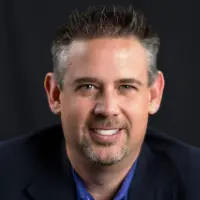
Stephen Downey is a healthcare expert with a passion for helping the industry treat and serve patients better. His experience includes organizations across the healthcare spectrum, including medical device, services, GPOs and health systems. He is a recognized supply chain expert, an in-demand speaker, and well-published author on the subject. At Cleveland Clinic, Mr. Downey serves as the Chief Supply Chain & Support Services Officer, where he leads a multi-disciplinary team that spans sourcing, materials management, technology/P2P, analytics and support services, including food services, linen and laundry, patient transport, Cleveland Clinic’s Red Coat program and service express (call center). He also leads the Excelerate GPO, a Cleveland Clinic joint venture with Vizient and OhioHealth, as the CEO. Prior to joining Cleveland Clinic, Mr. Downey led the Supply Chain Operations business for Vizient, which included operating multiple health system supply chains, setting national best practices, and leading supply chain technologies. Mr. Downey joined Vizient from GEODIS, an international supply chain transport and logistics firm, operating in 67 countries where he served as vice president of both the consumer electronics and healthcare verticals. Prior to this position, he led commercial supply chain teams at Integra Life Sciences and Scott Medical Products. Mr. Downey graduated from Lehigh University with a bachelor’s degree in electrical engineering and a master’s degree in management of technology. He serves as co-chair of the Children’s Brain Tumor Foundation and board member of Friends Health Connection. He and his twin boys reside in Cleveland, Ohio. Connect with Steve on LinkedIn.
